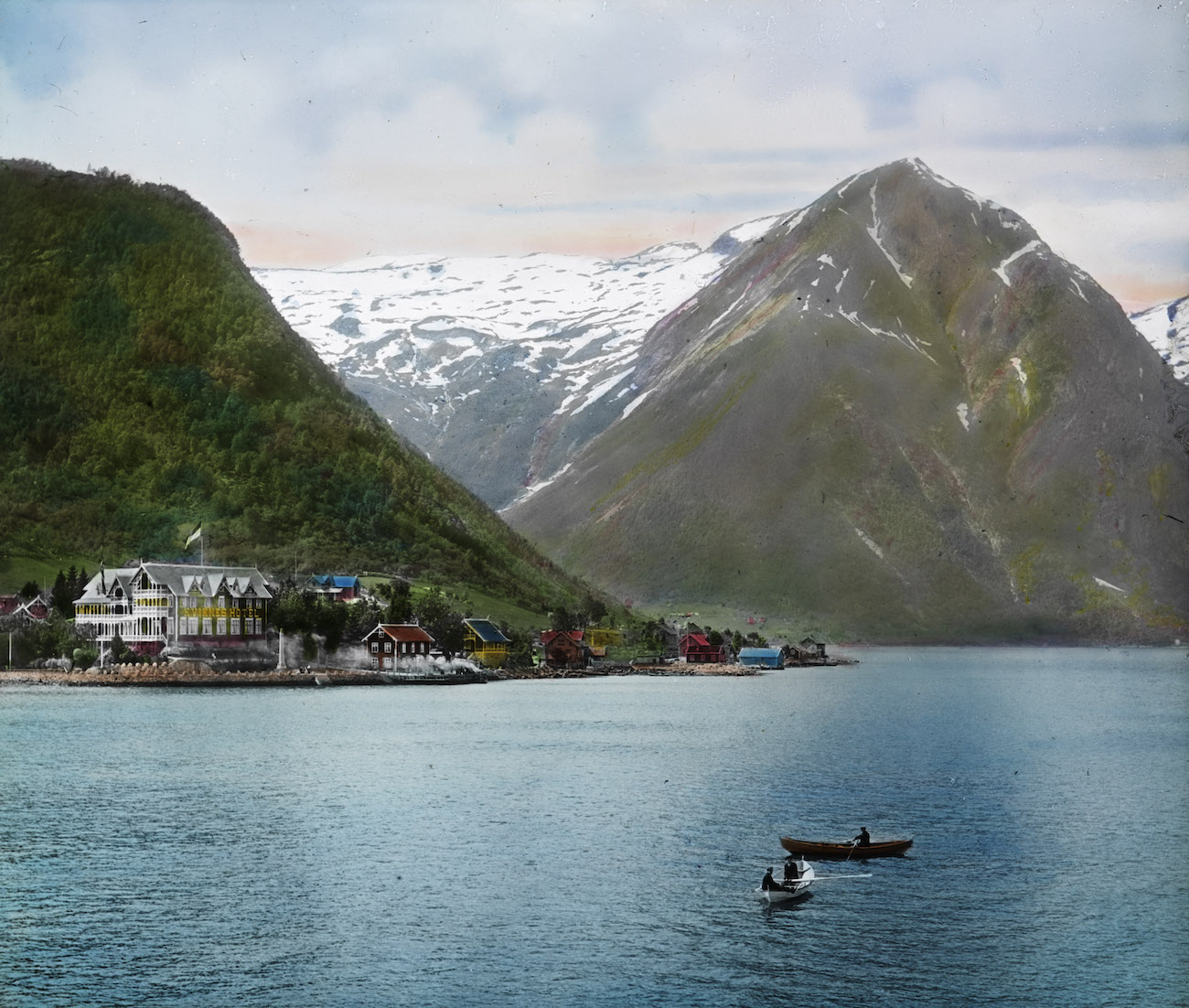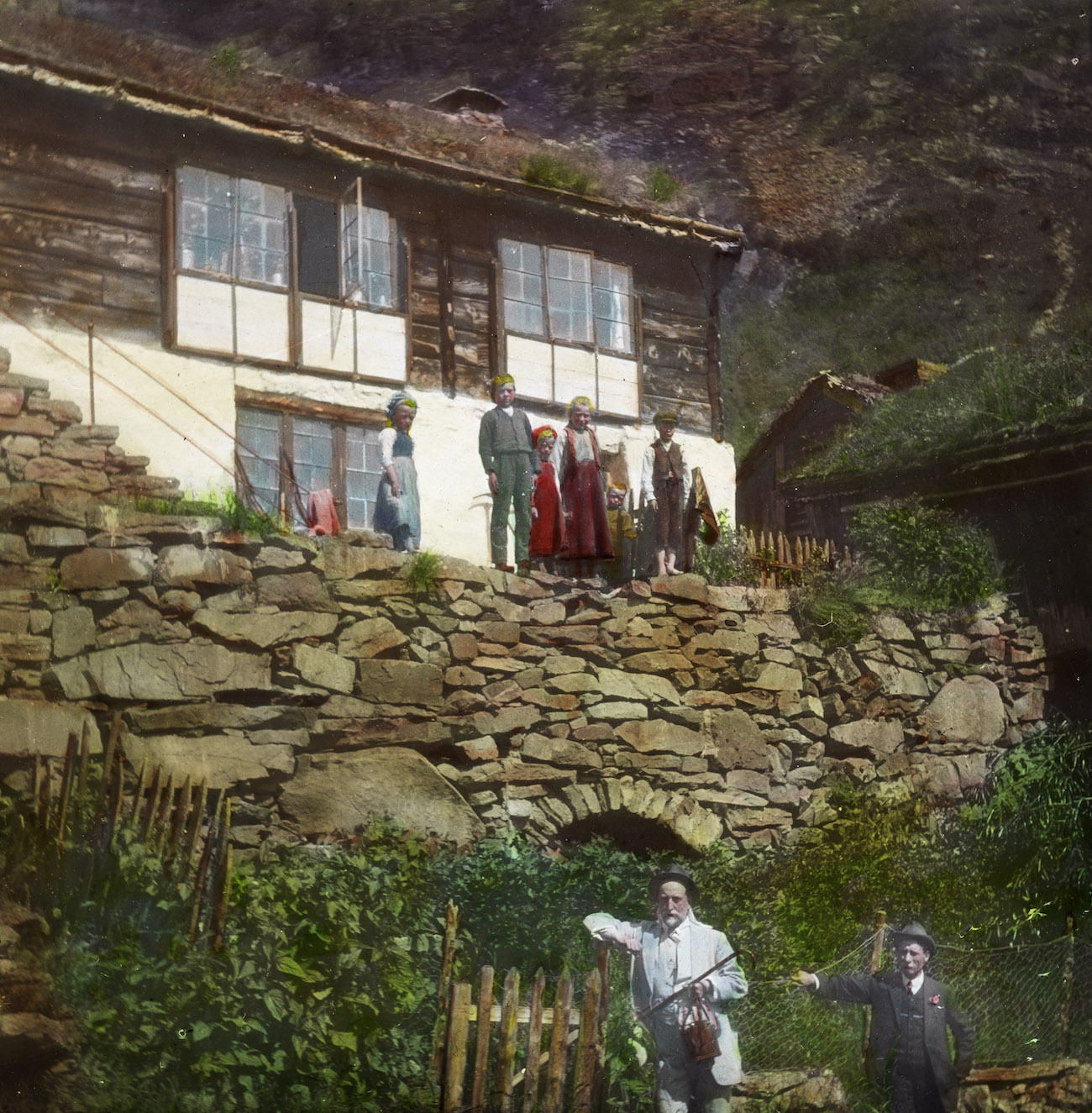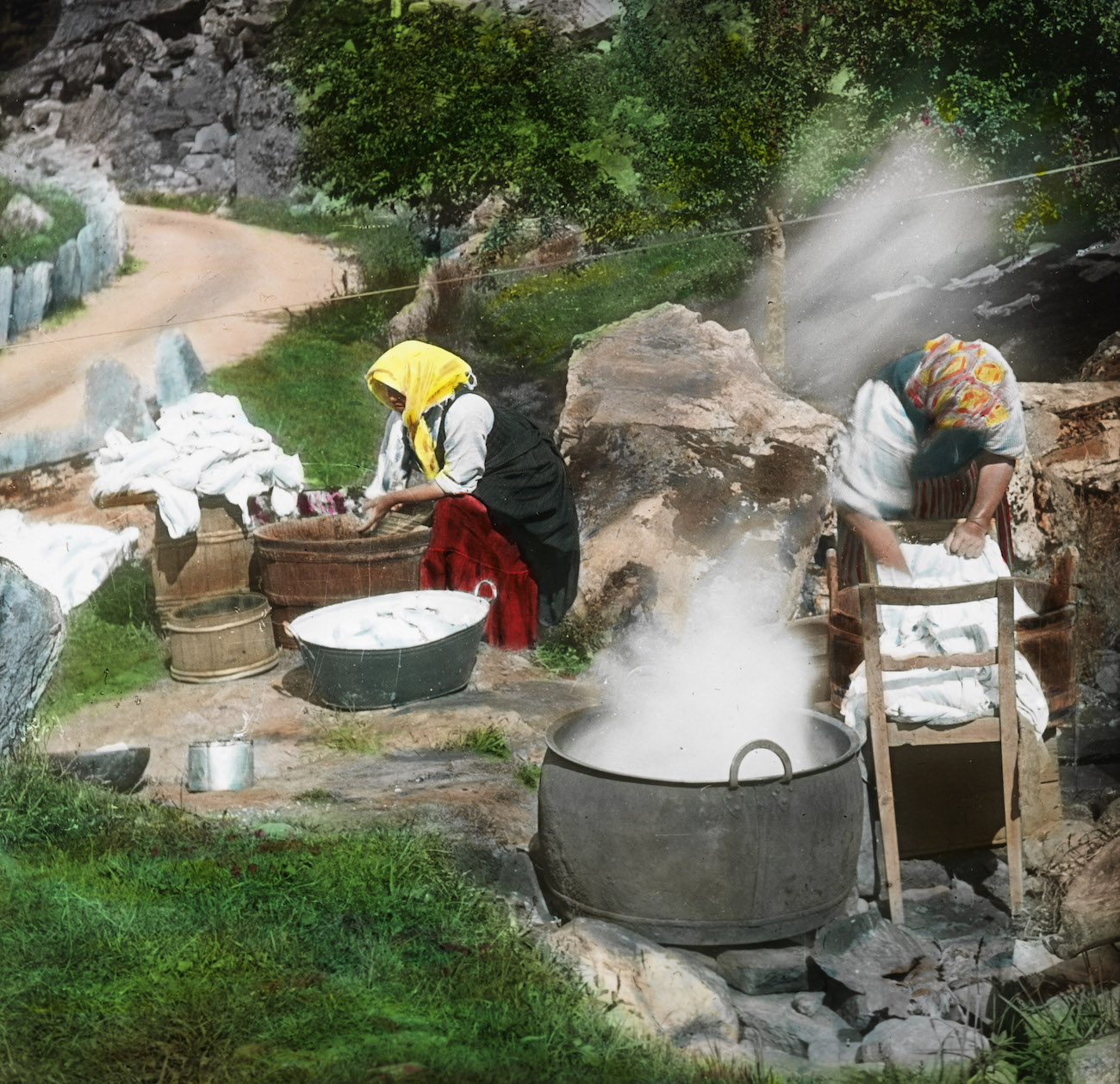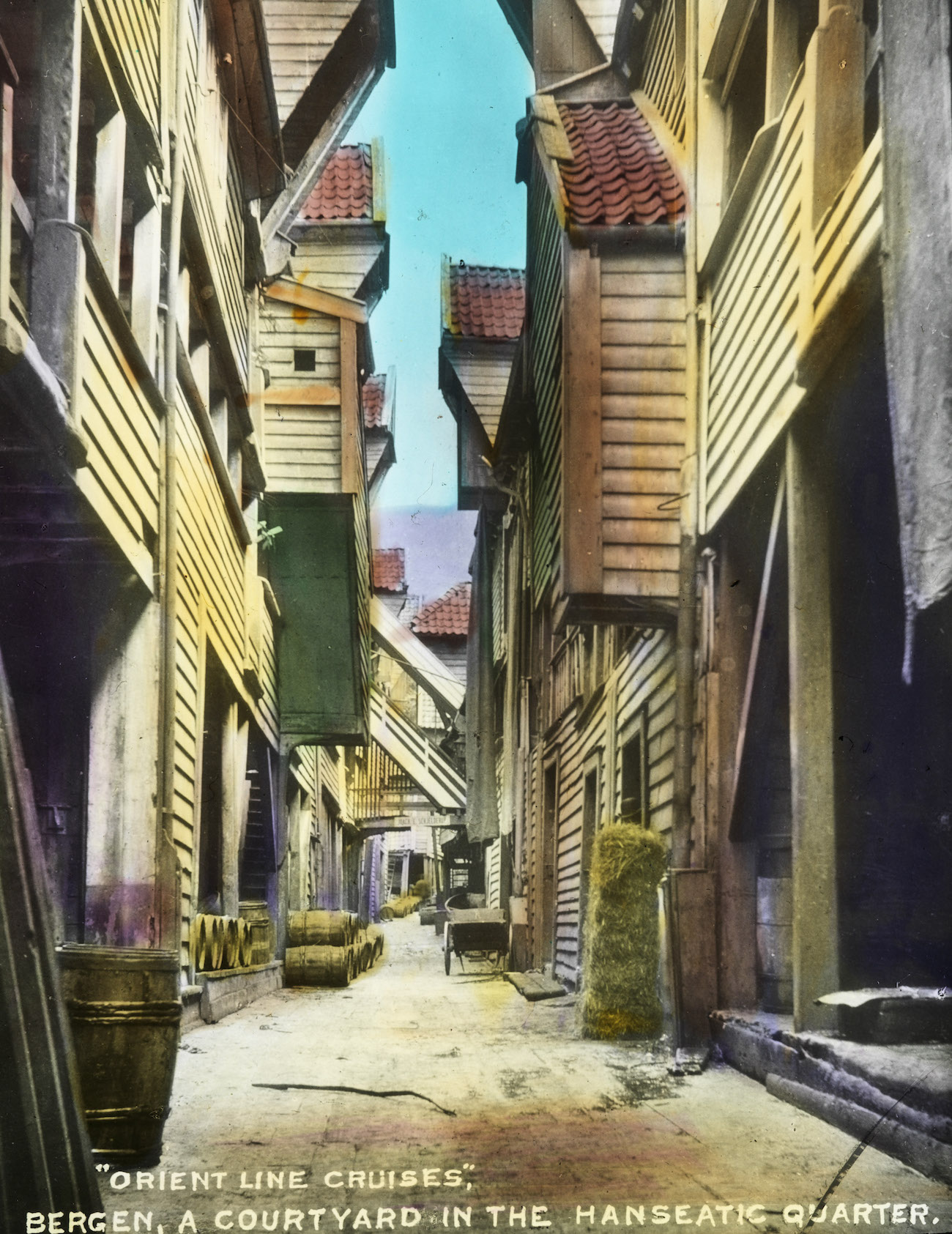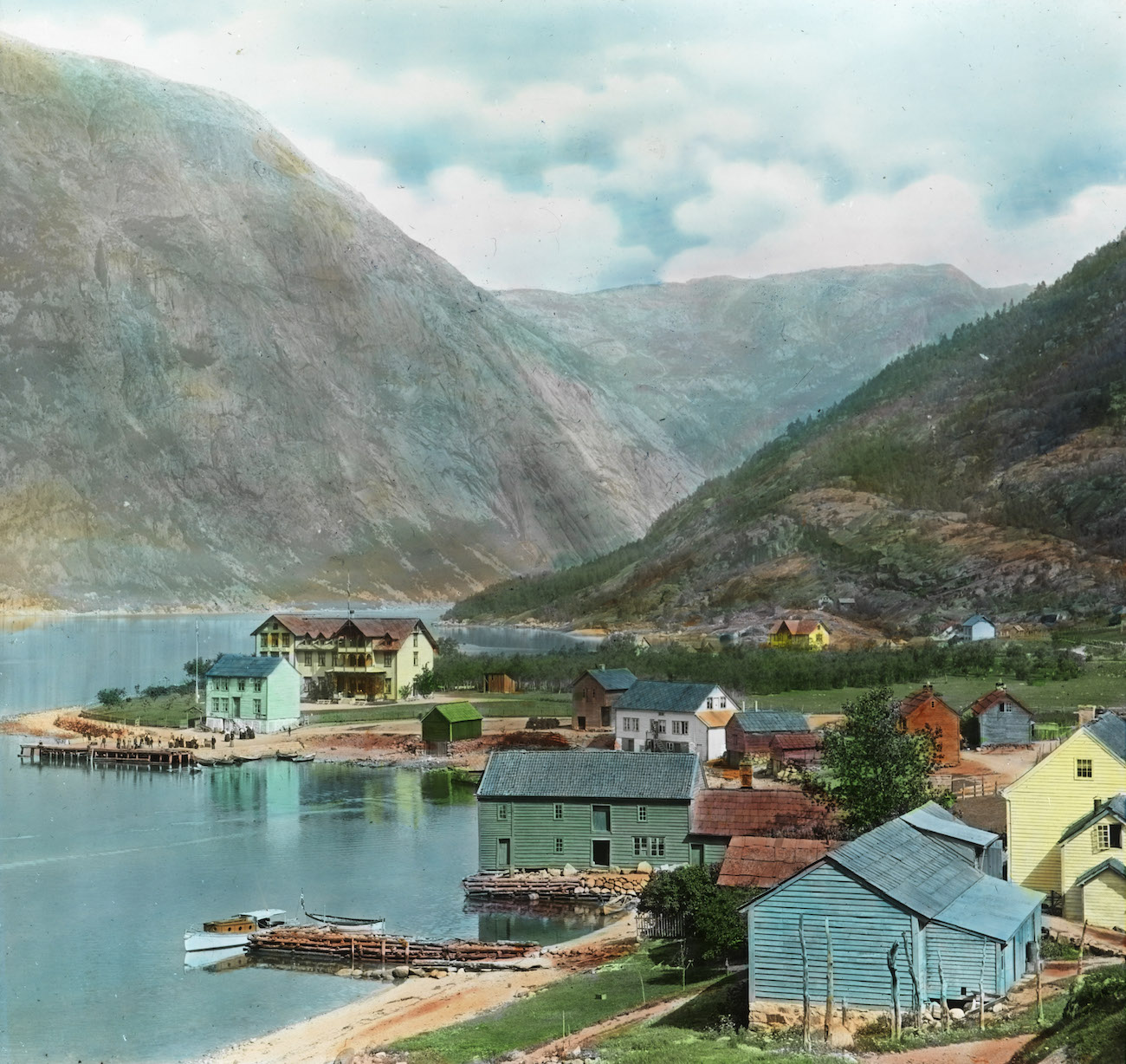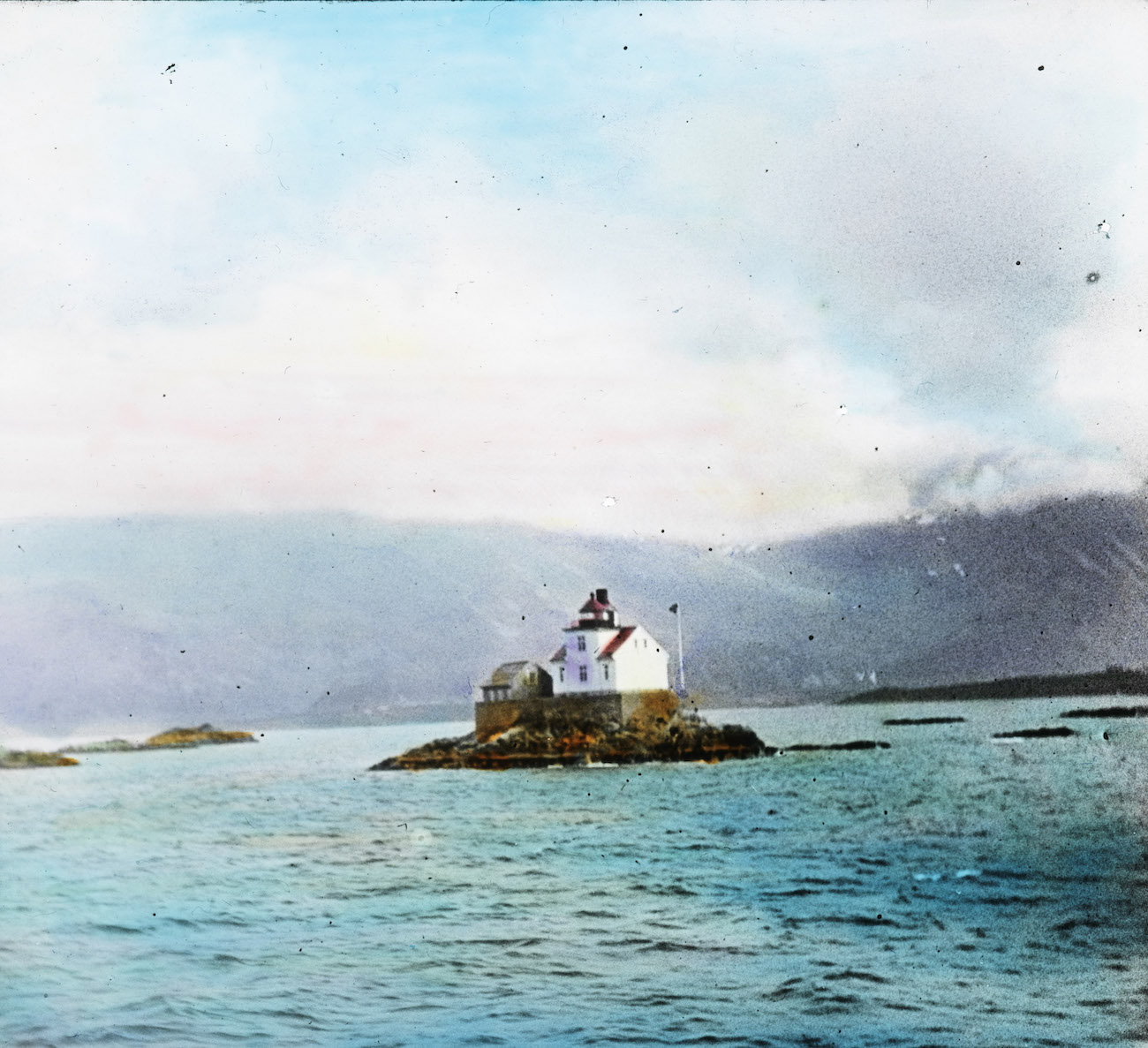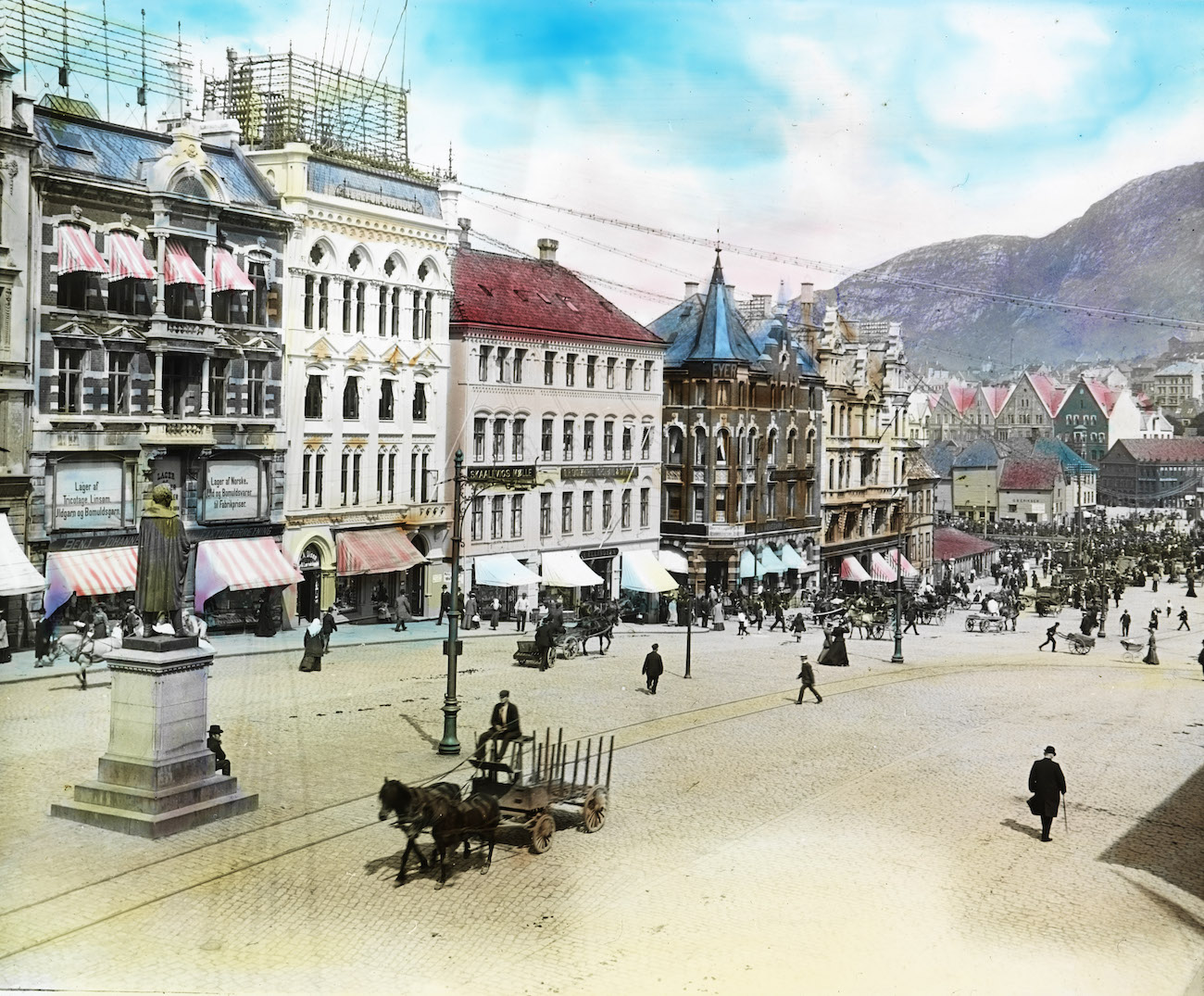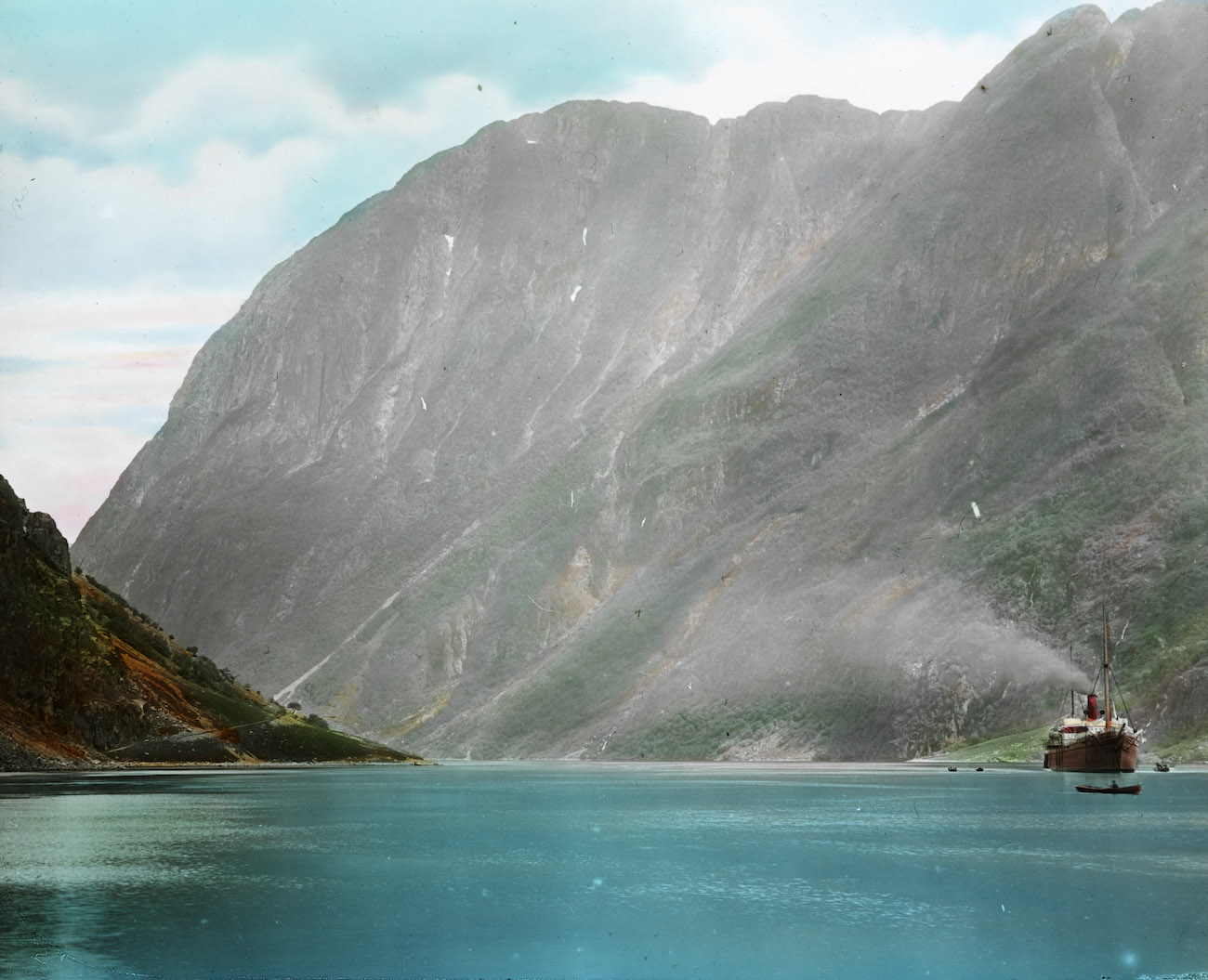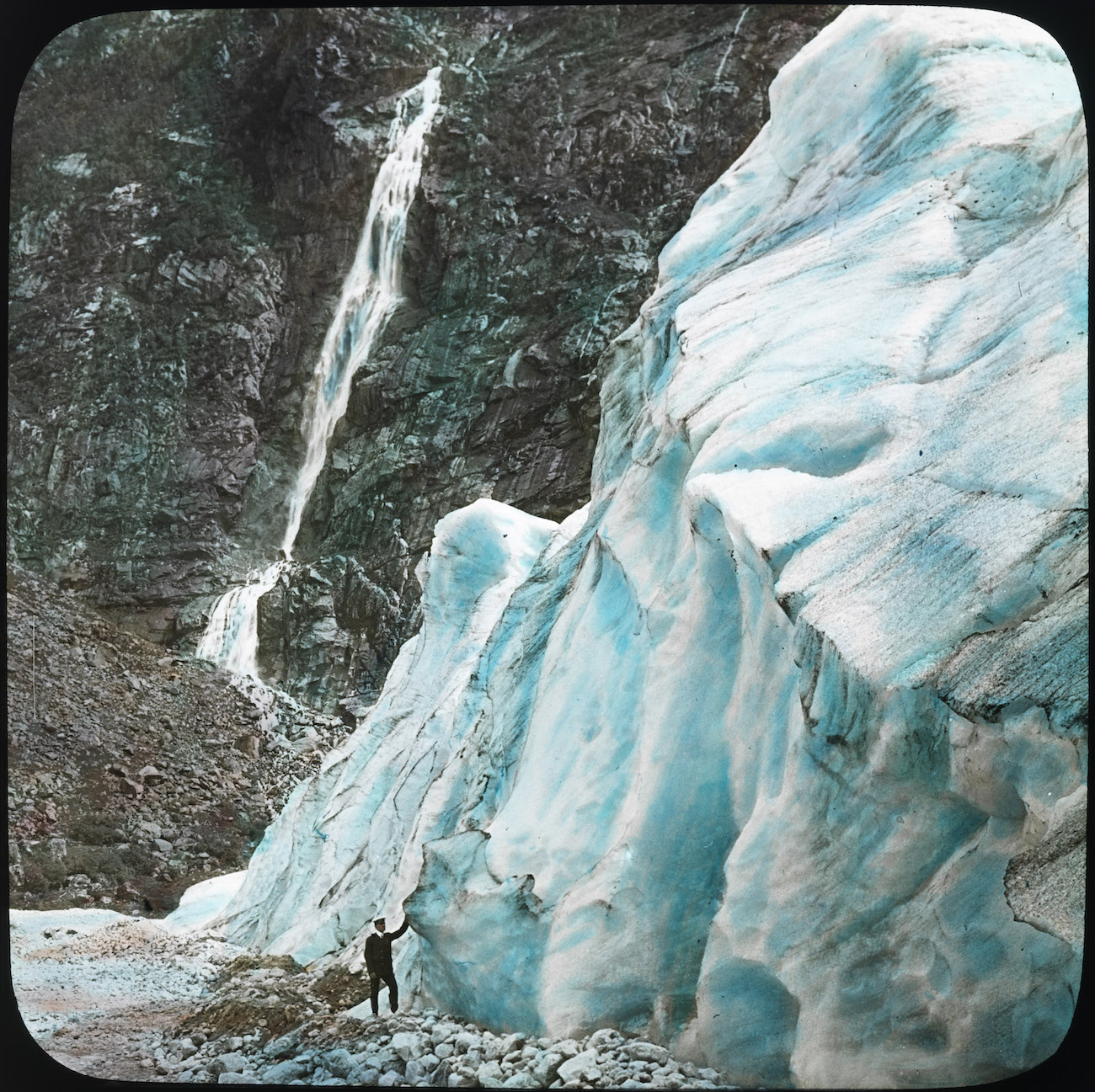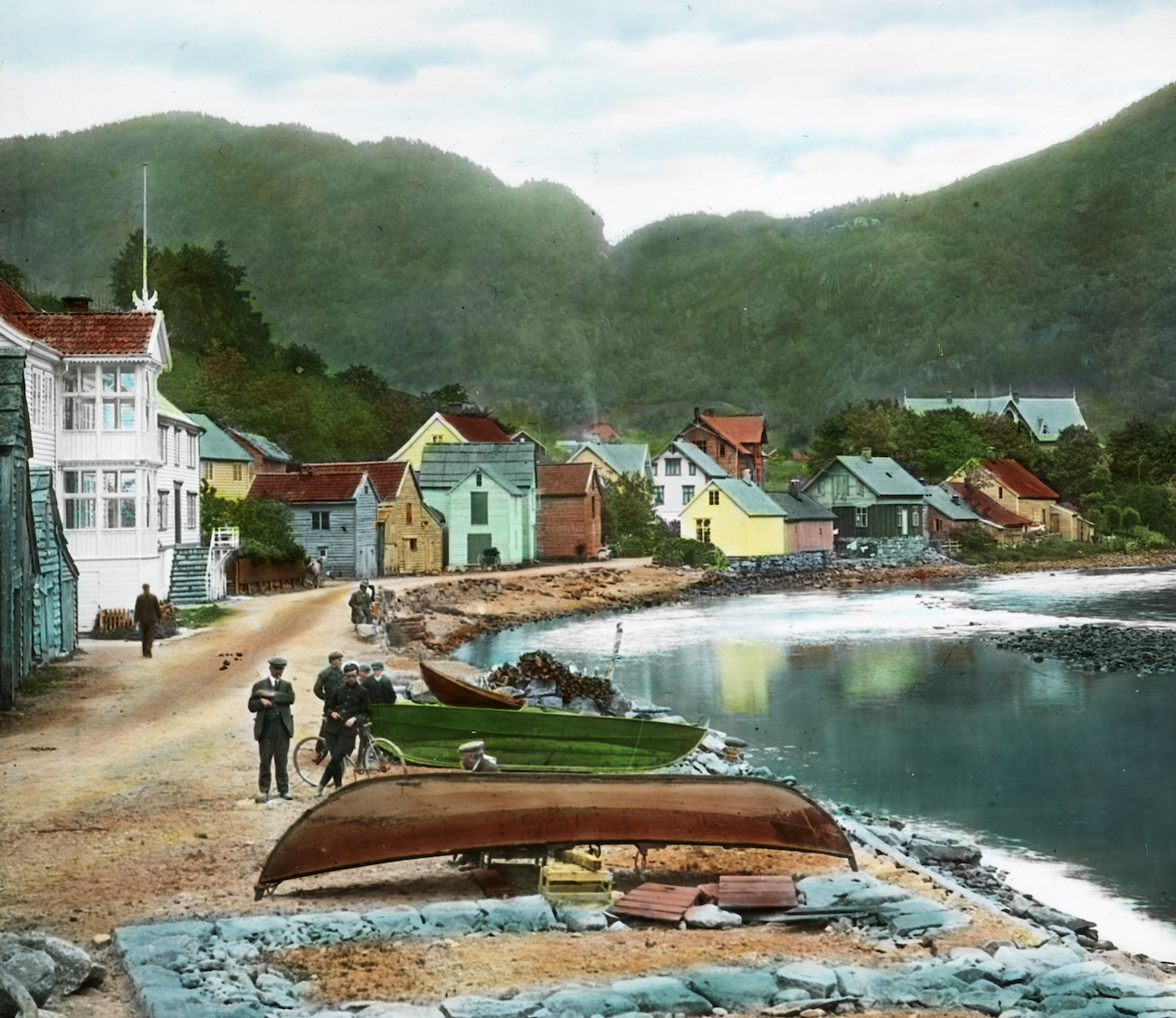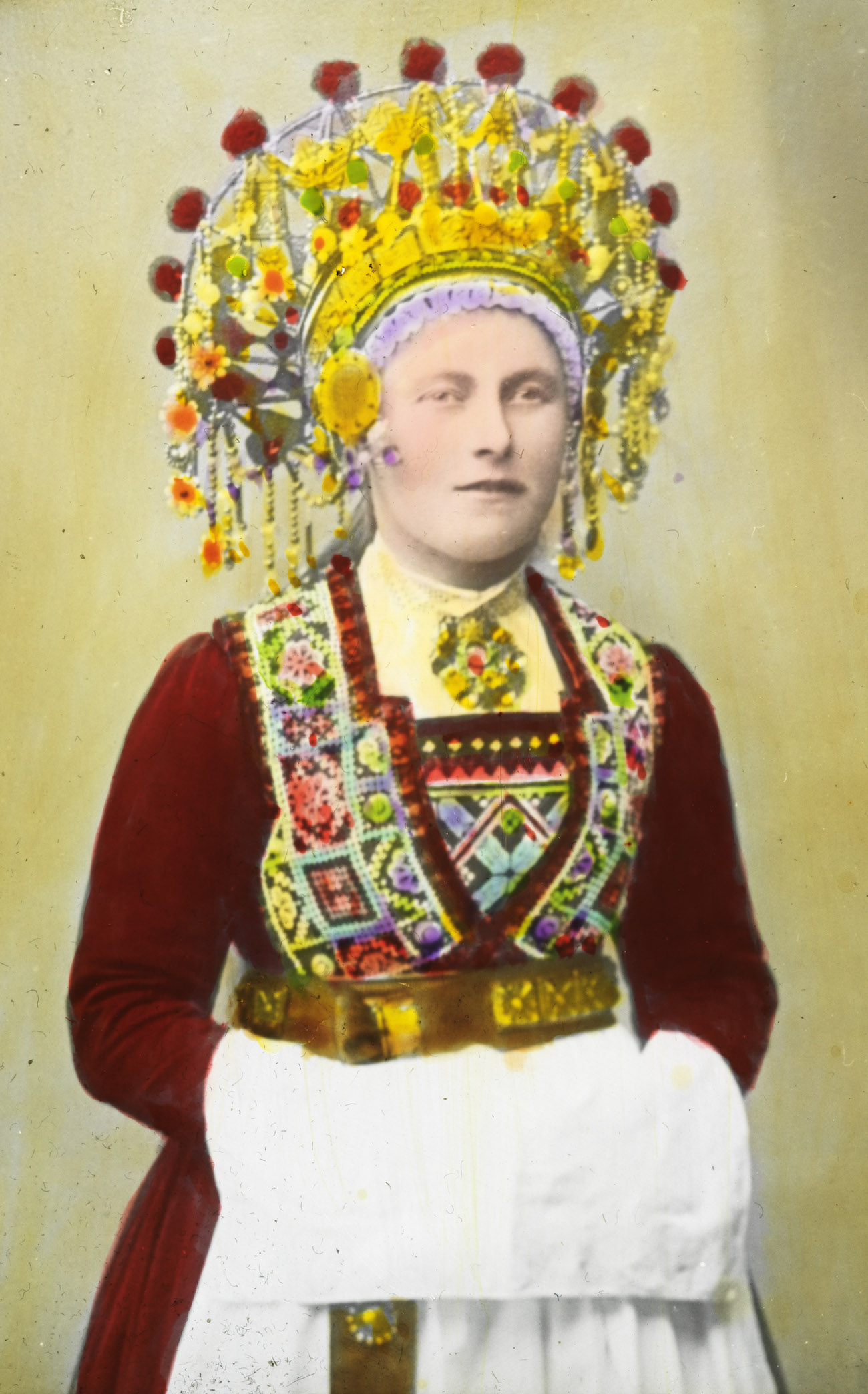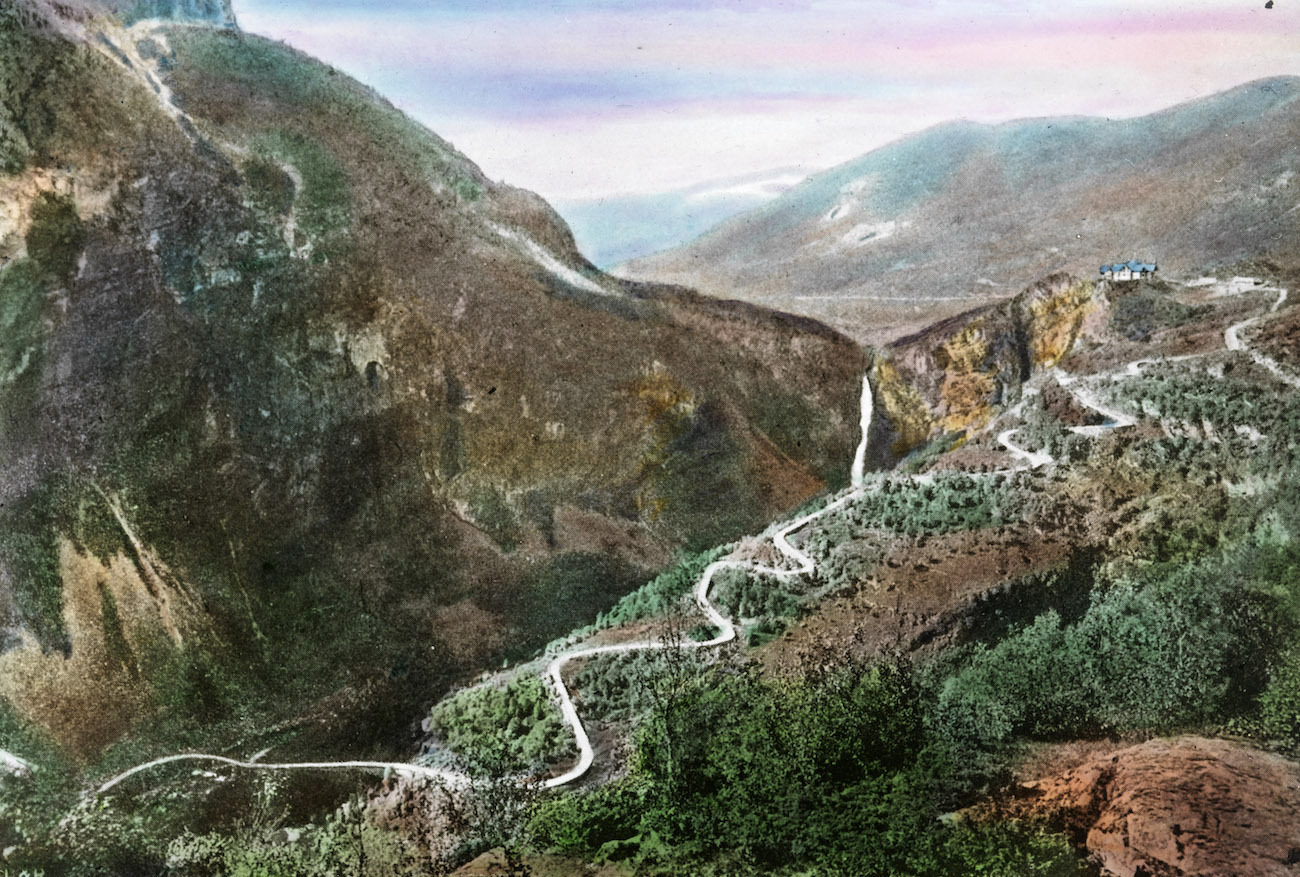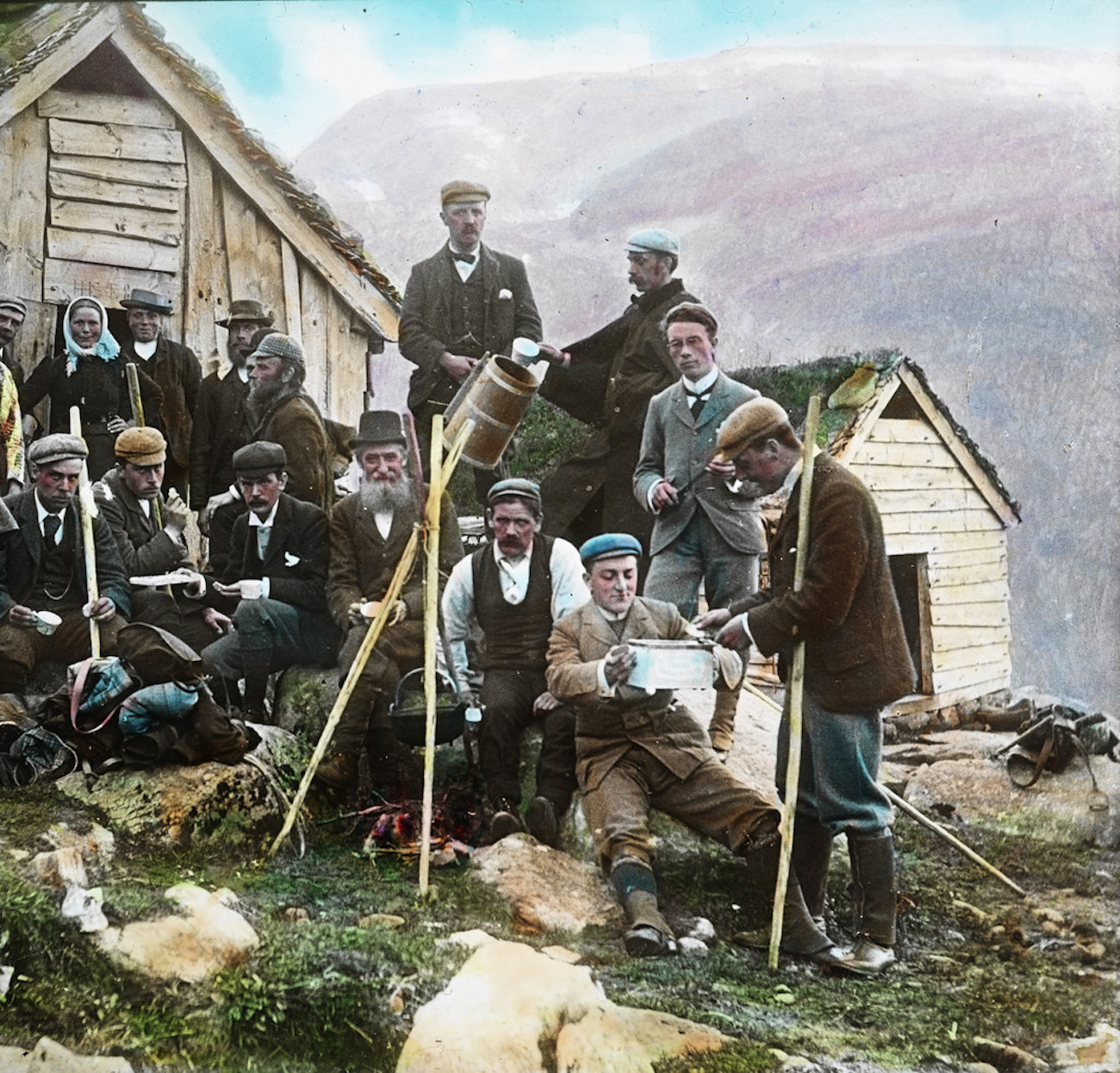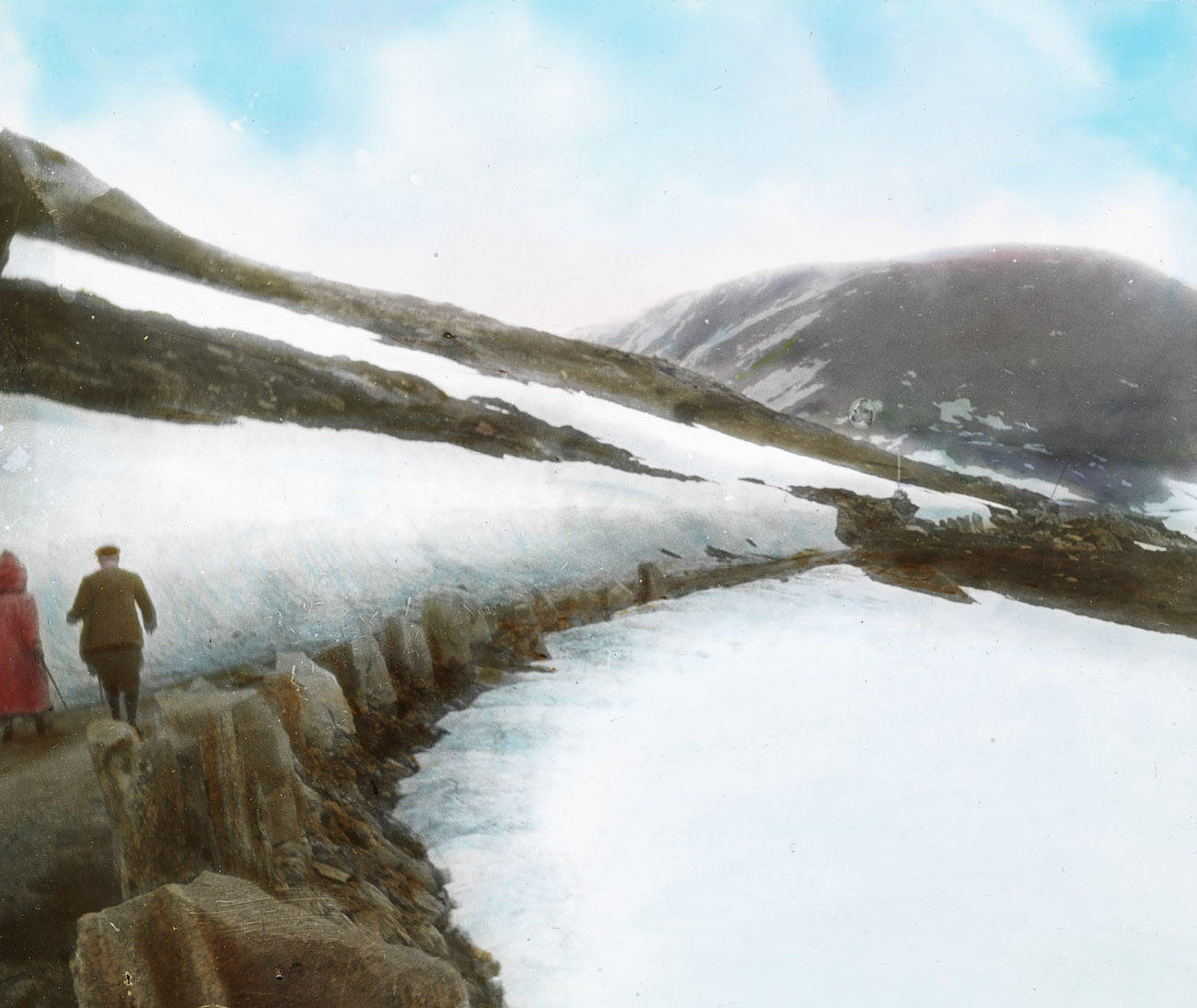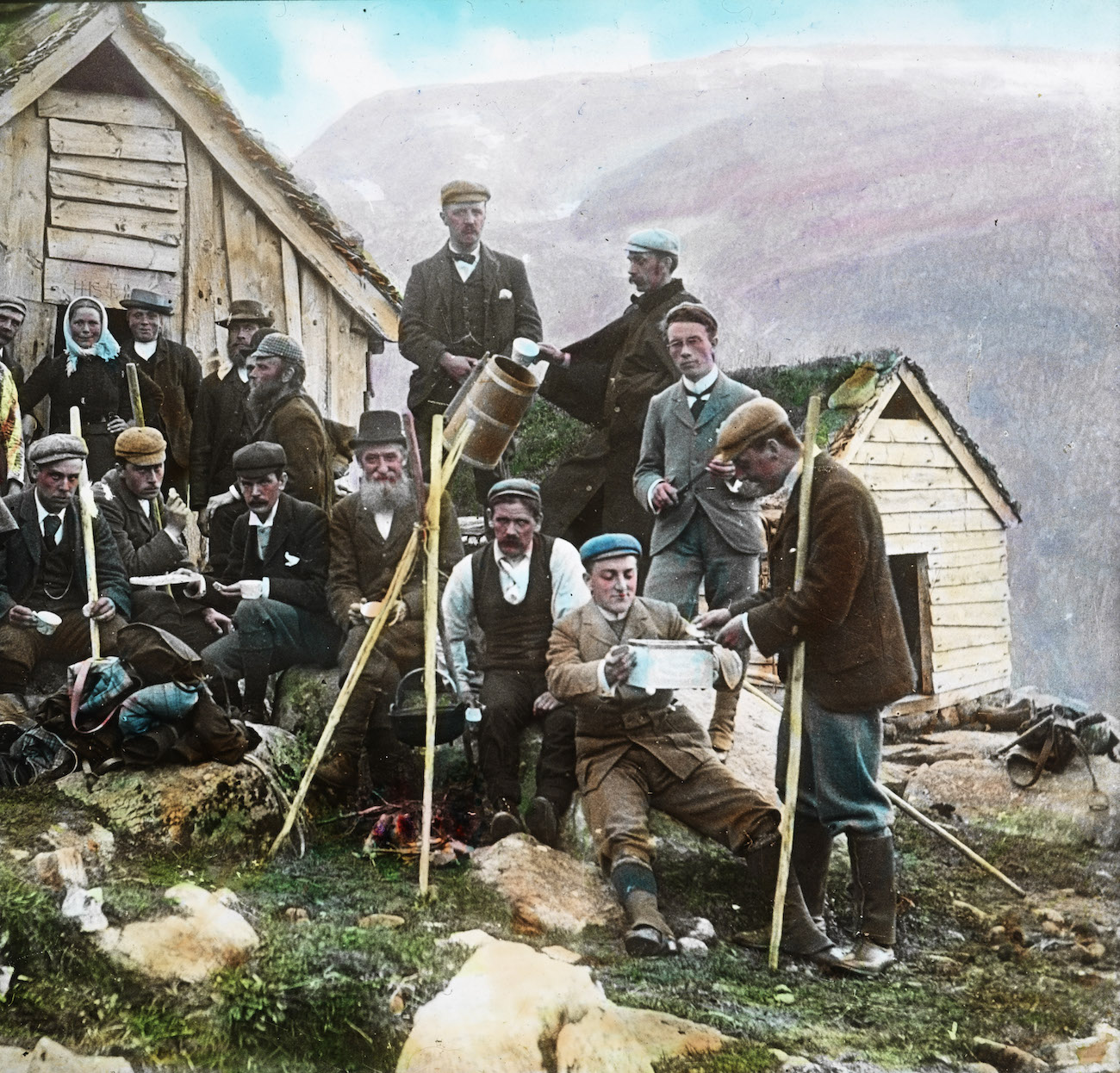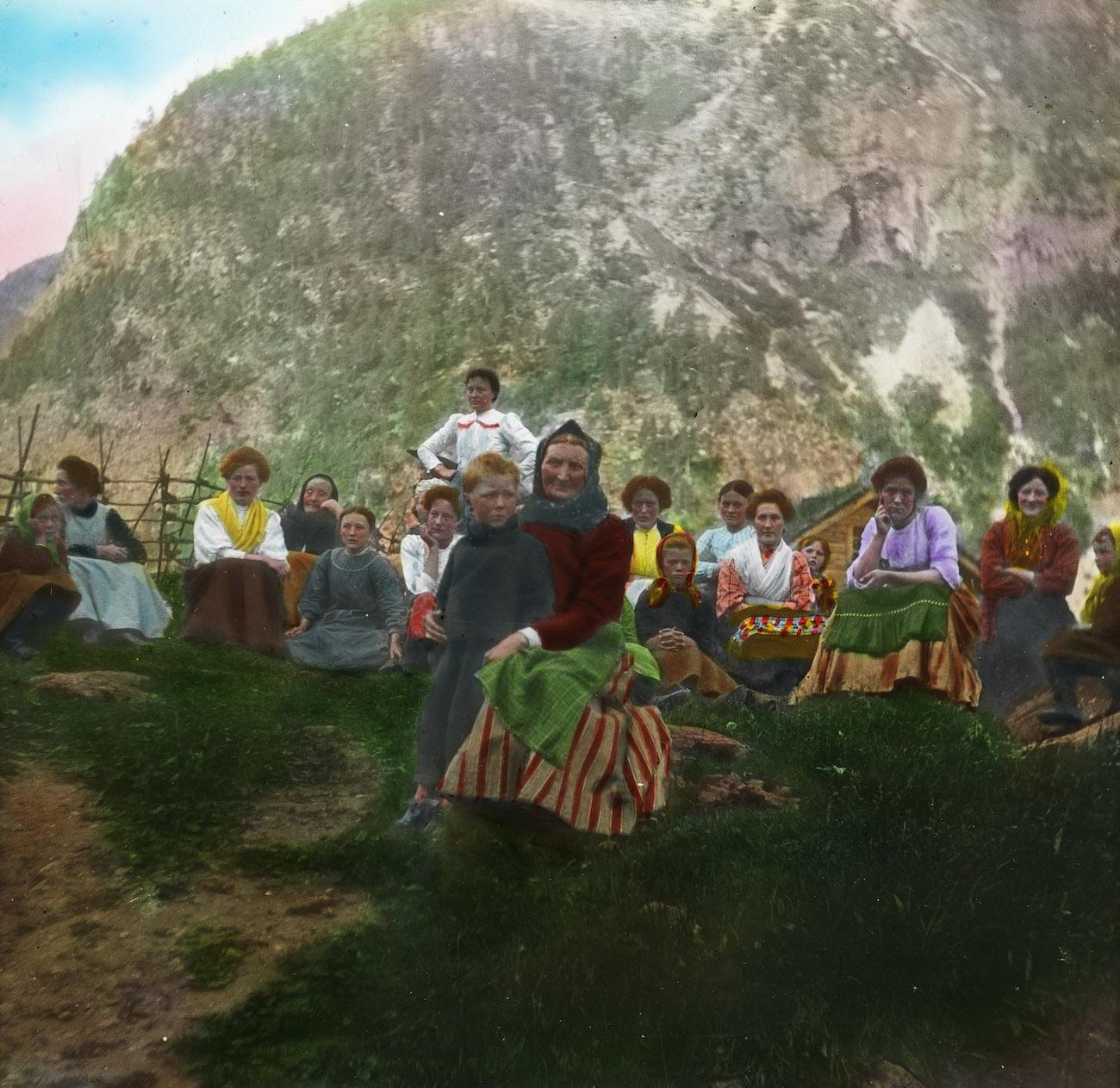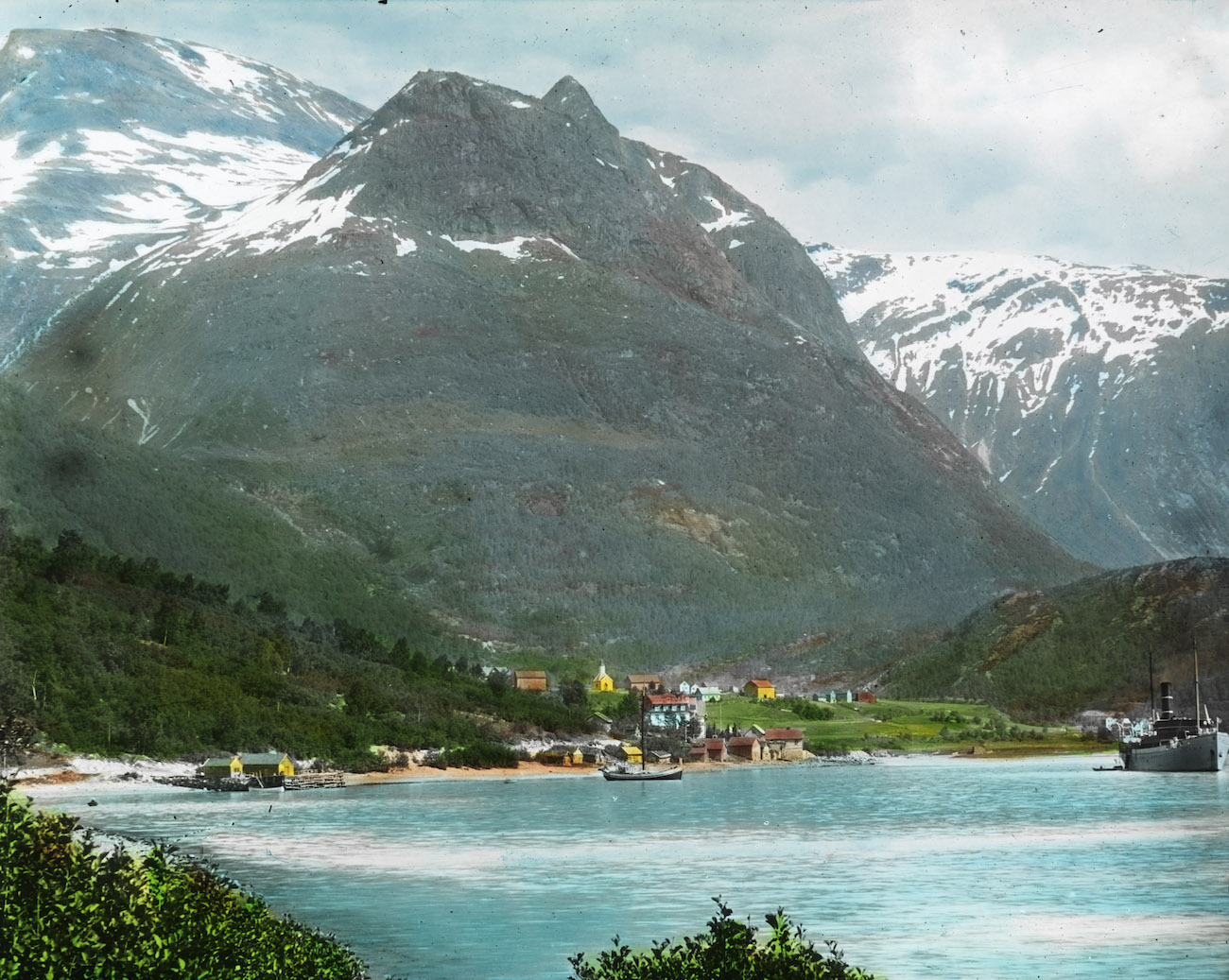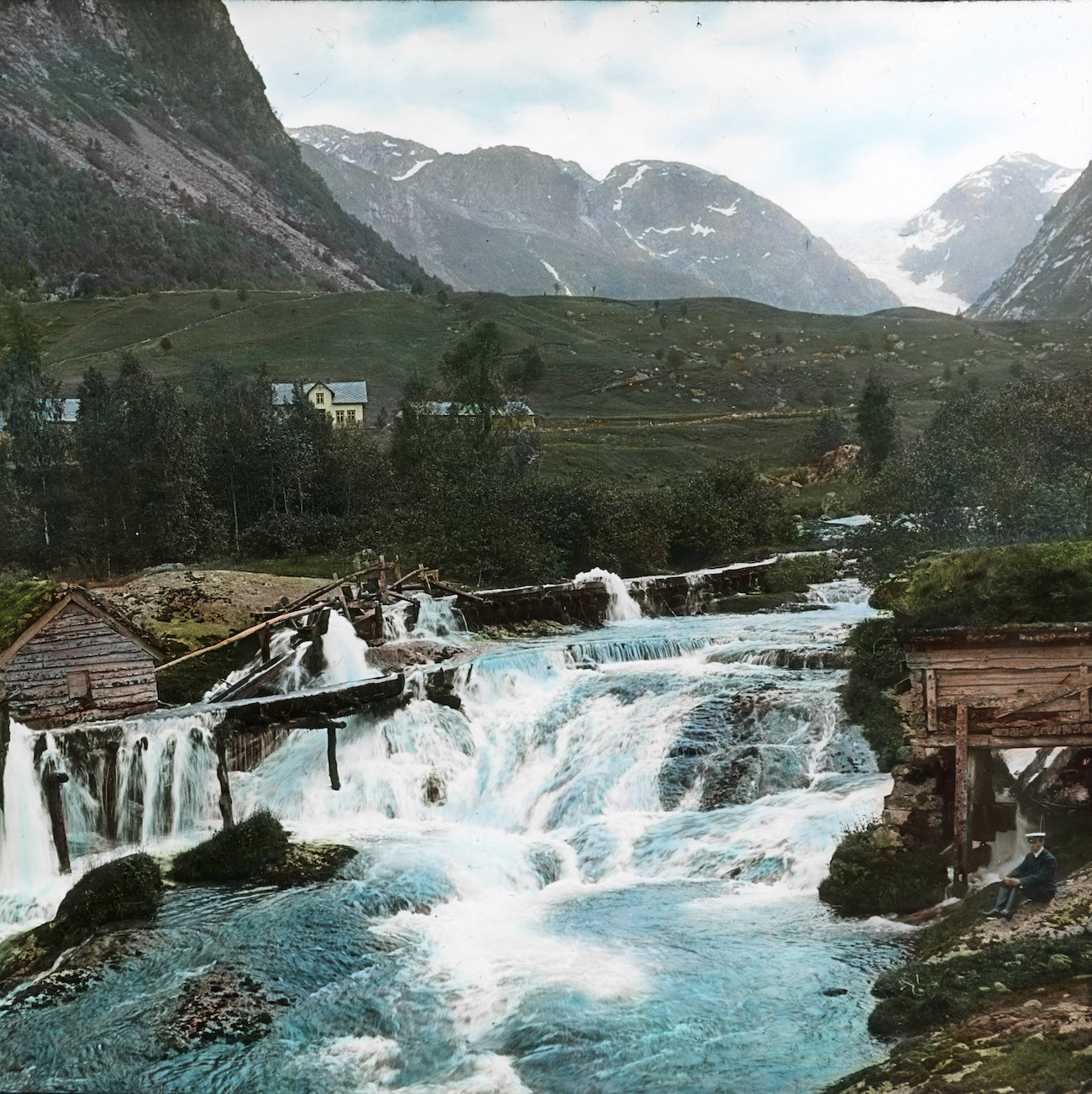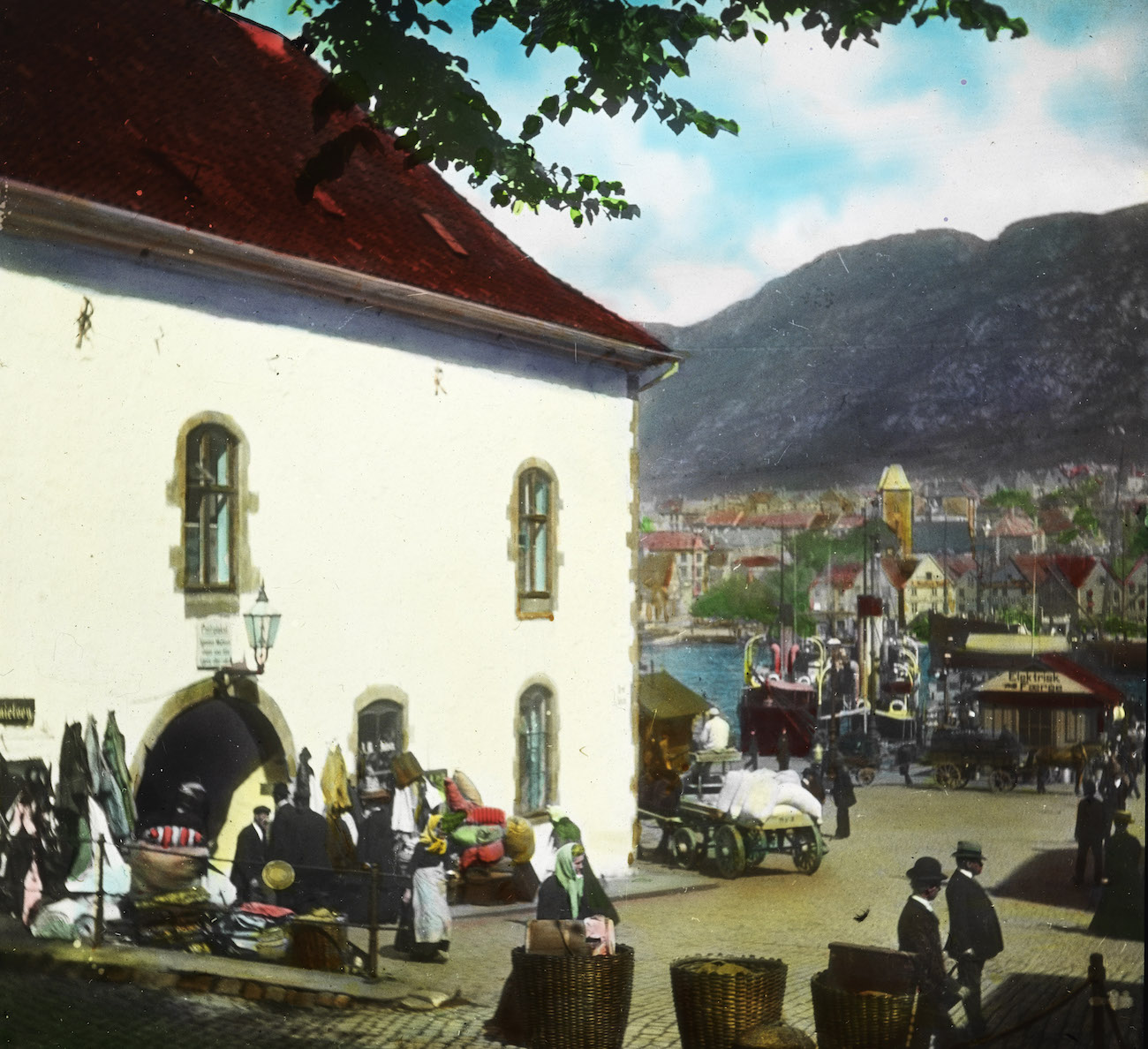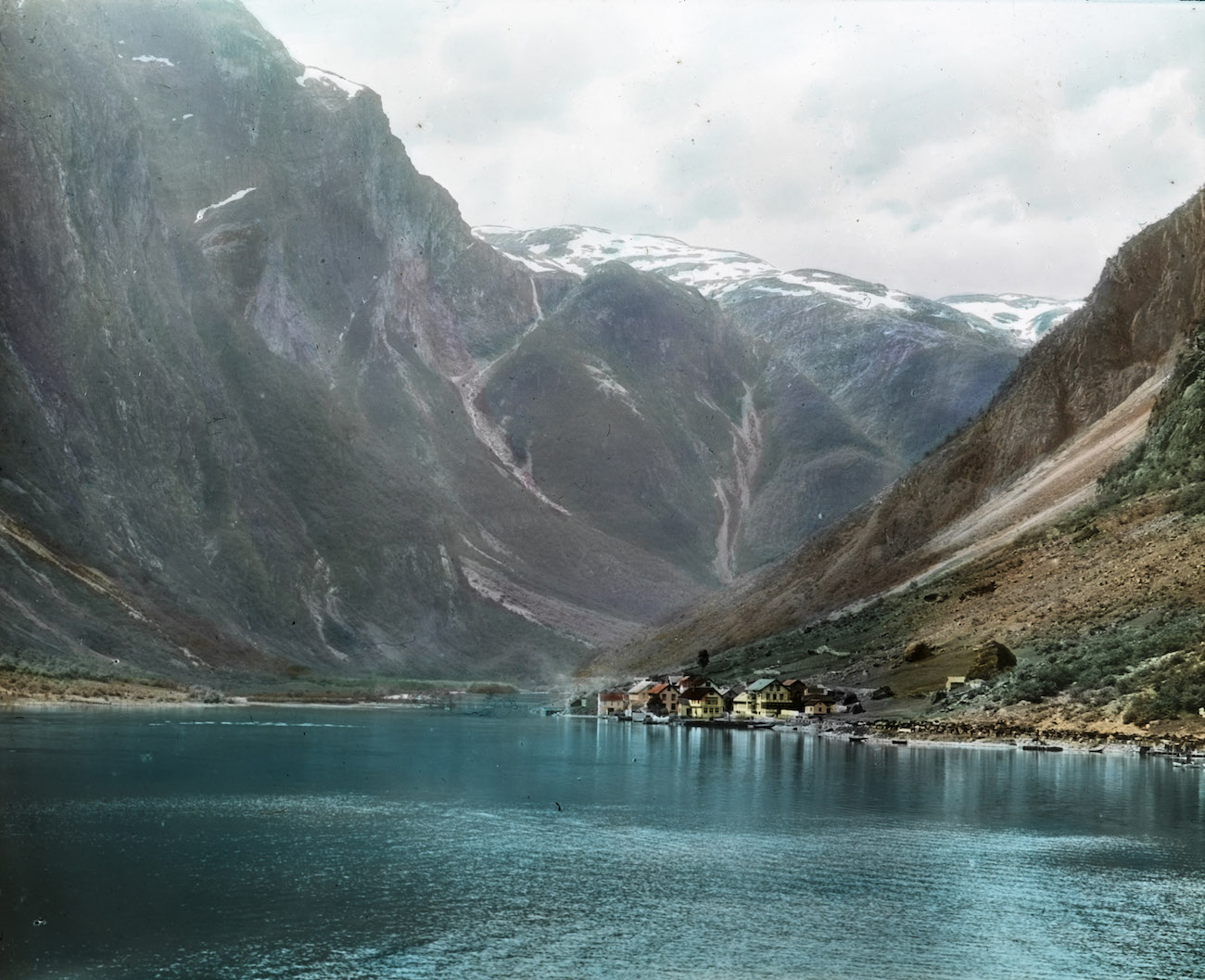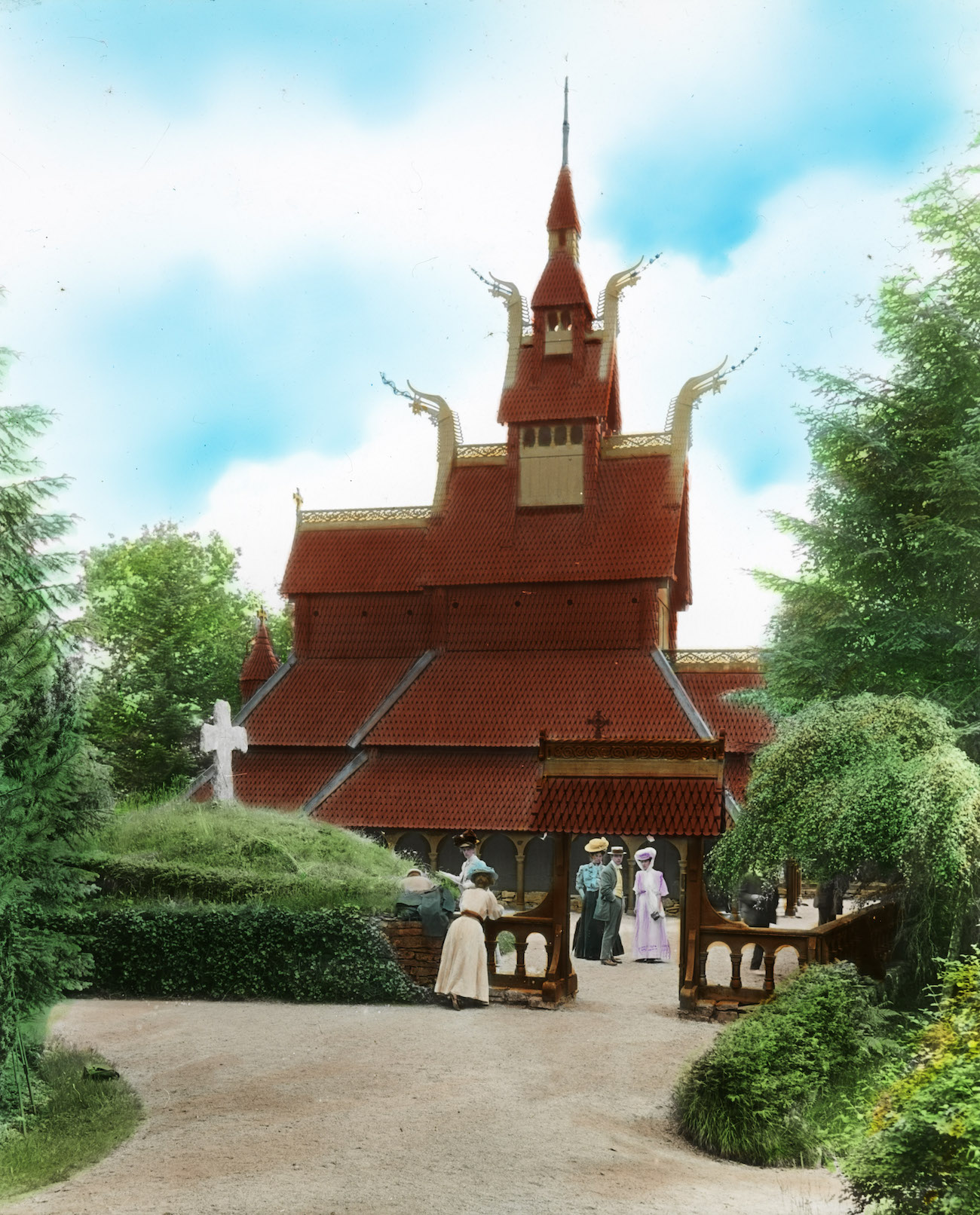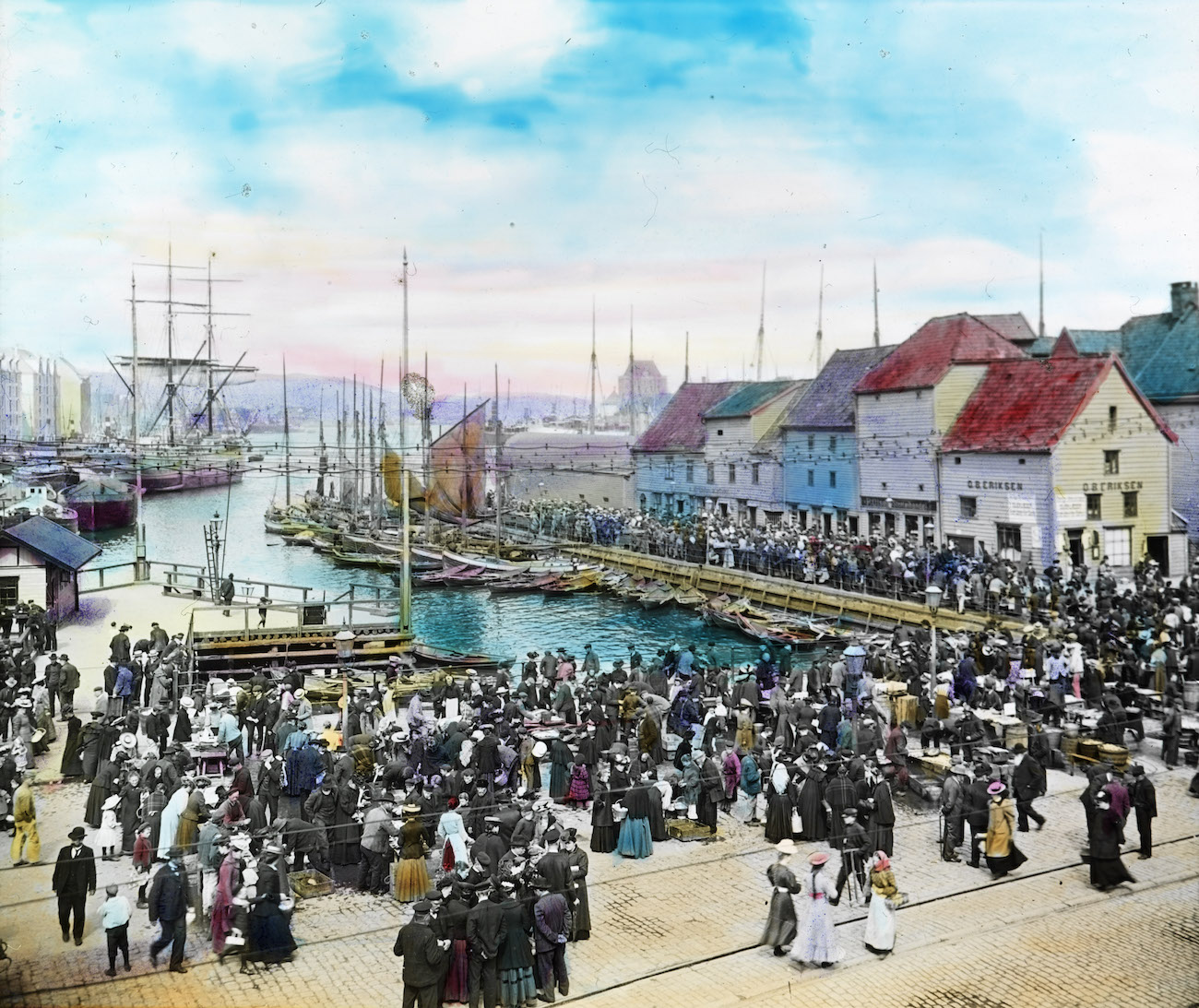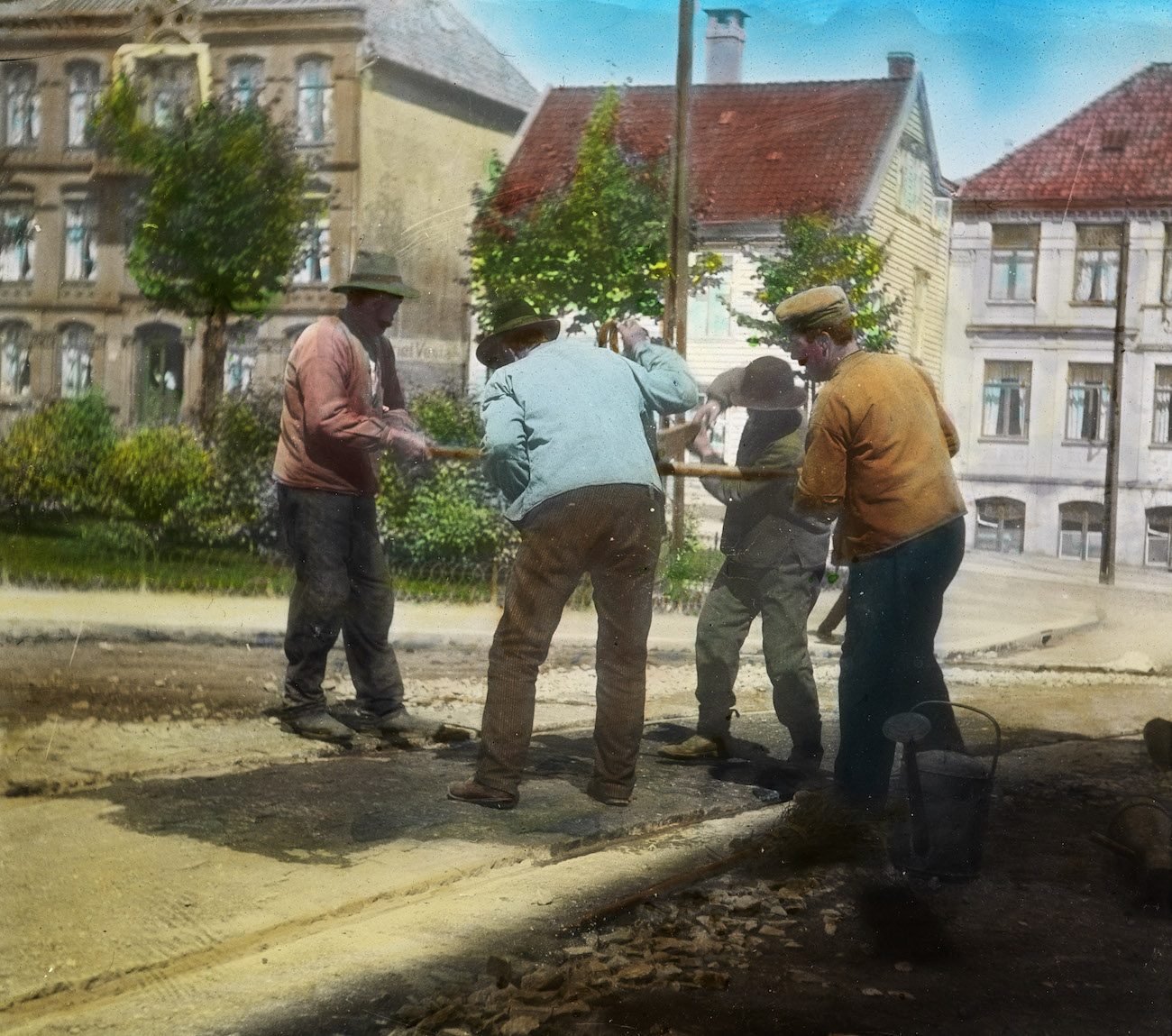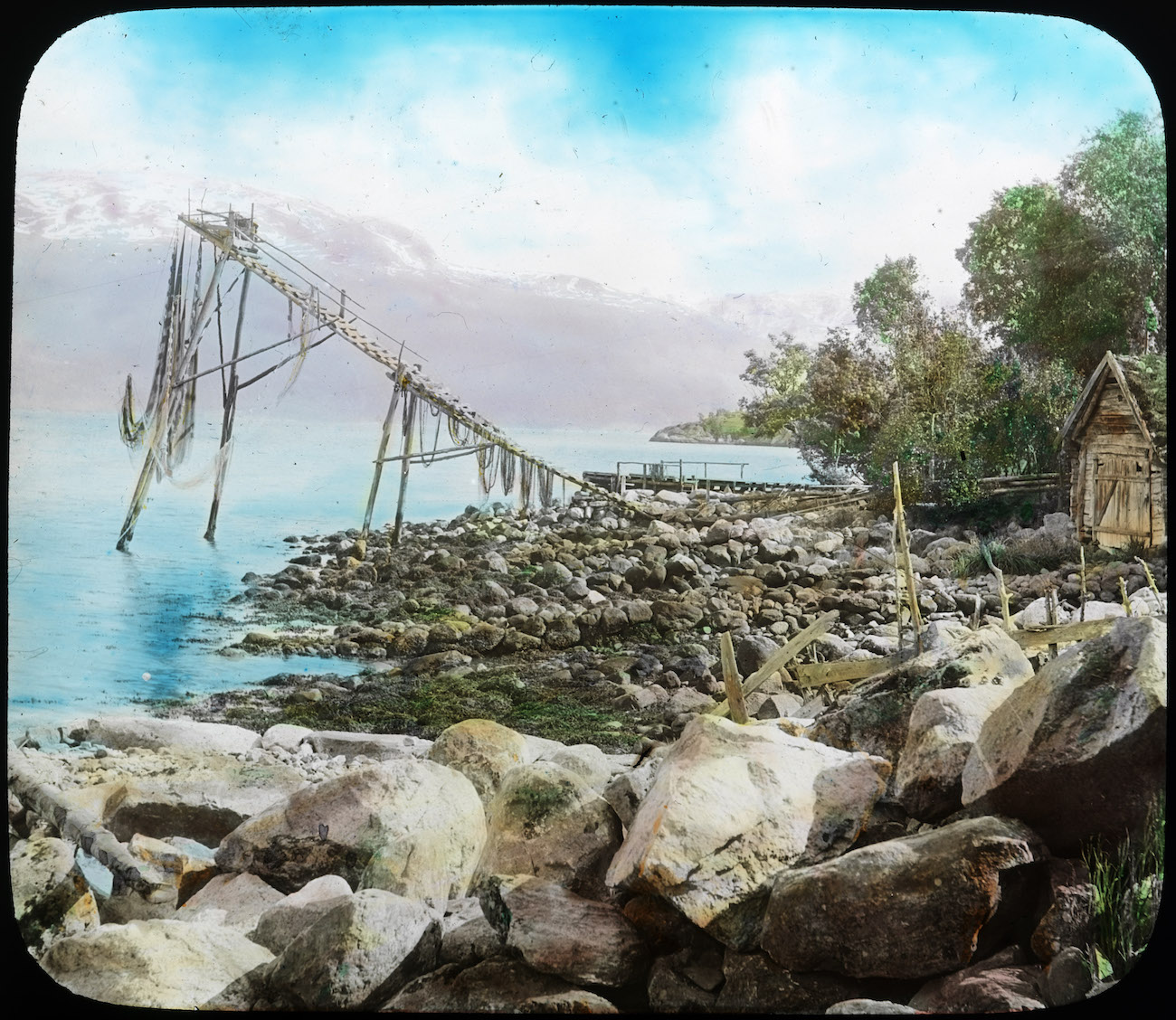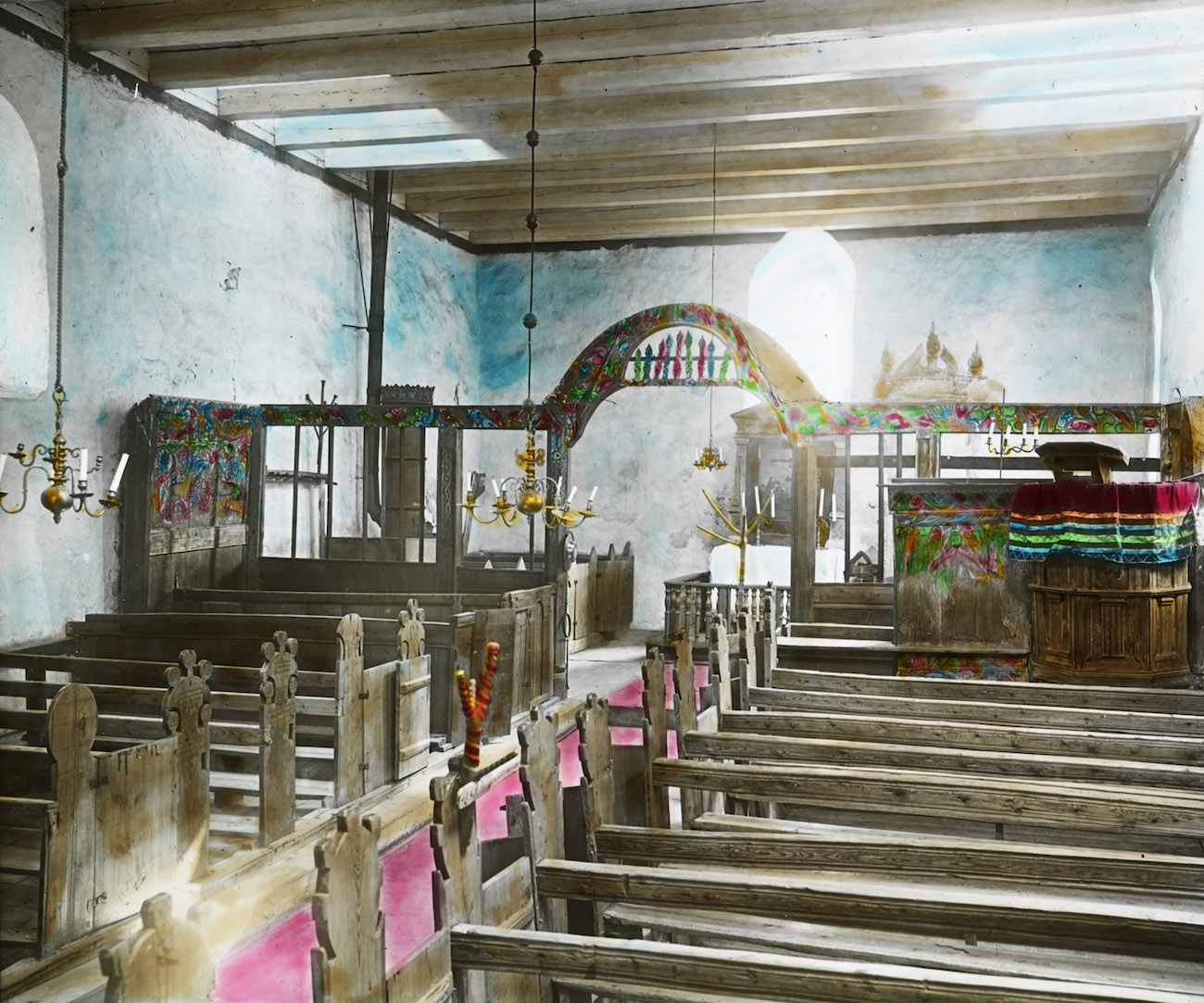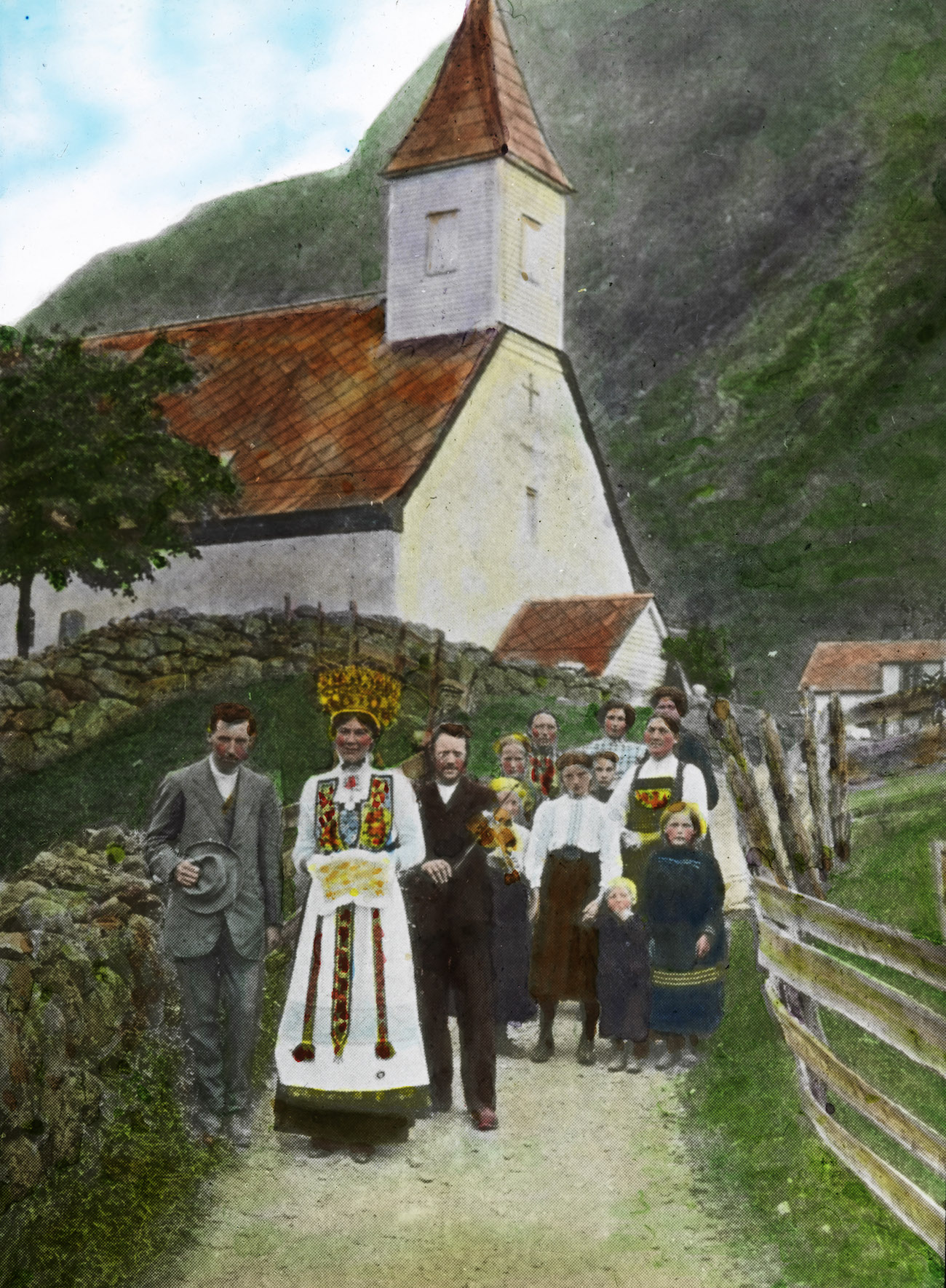These hand tinted lantern slides show tourists and destinations in Norway around the turn of the 19th century. They were produced by professional photographer Samuel J. Beckett and P. Heywood Hadfield, a ship’s surgeon employed by the Orient Steam Navigation Company. The two British men traveled on the Orient-Royal Mail Line to Australia and various Orient Line pleasure cruises to Norway and other destinations.
Hadfield wrote With an Ocean Liner (Orient Co’s S.S. “Ophir”) Through the Fiords of Norway, A Photographic Memento of a Fortnight’s Cruising, a book published in several editions by the London Stereoscopic & Photographic Co. Ltd in the early 1900s. In the book it is stated that the company is “prepared to supply Lantern Slides of the Photographs either coloured or uncoloured”. Both the book and the lantern slides would most likely have been marketed as souvenirs to the cruise passengers.
Beckett also published books from his travels in Norway. Several of the slides in this collection illustrate his travel handbook The Fjords and Folk of Norway, first published in 1915 by Methuen & Co. Ltd.
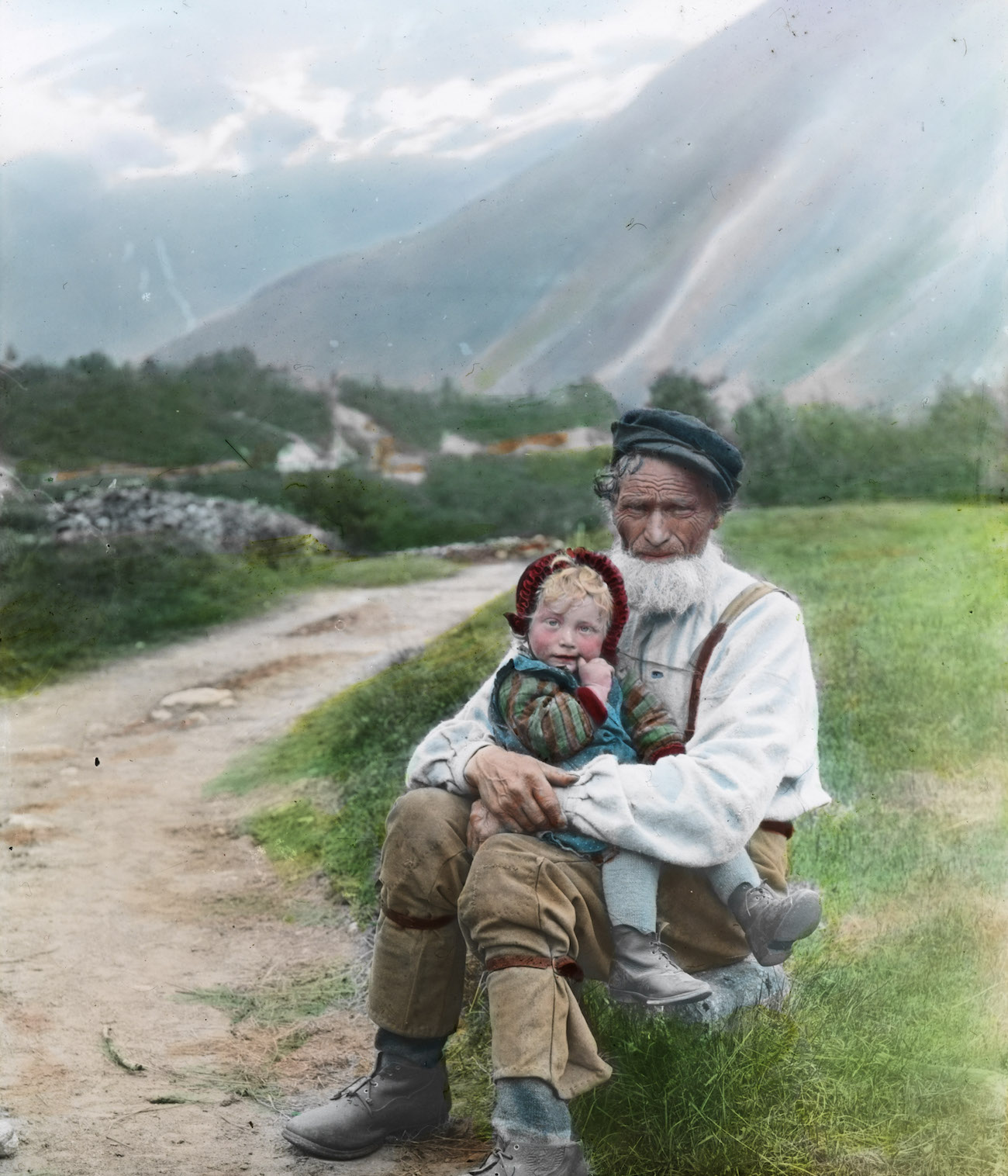
Description: The girl is probably Anna Øye, later married Nordang (1906-1997). The man holding her is Elling J. Øyehol (born 1841) from Heimste-Holen.
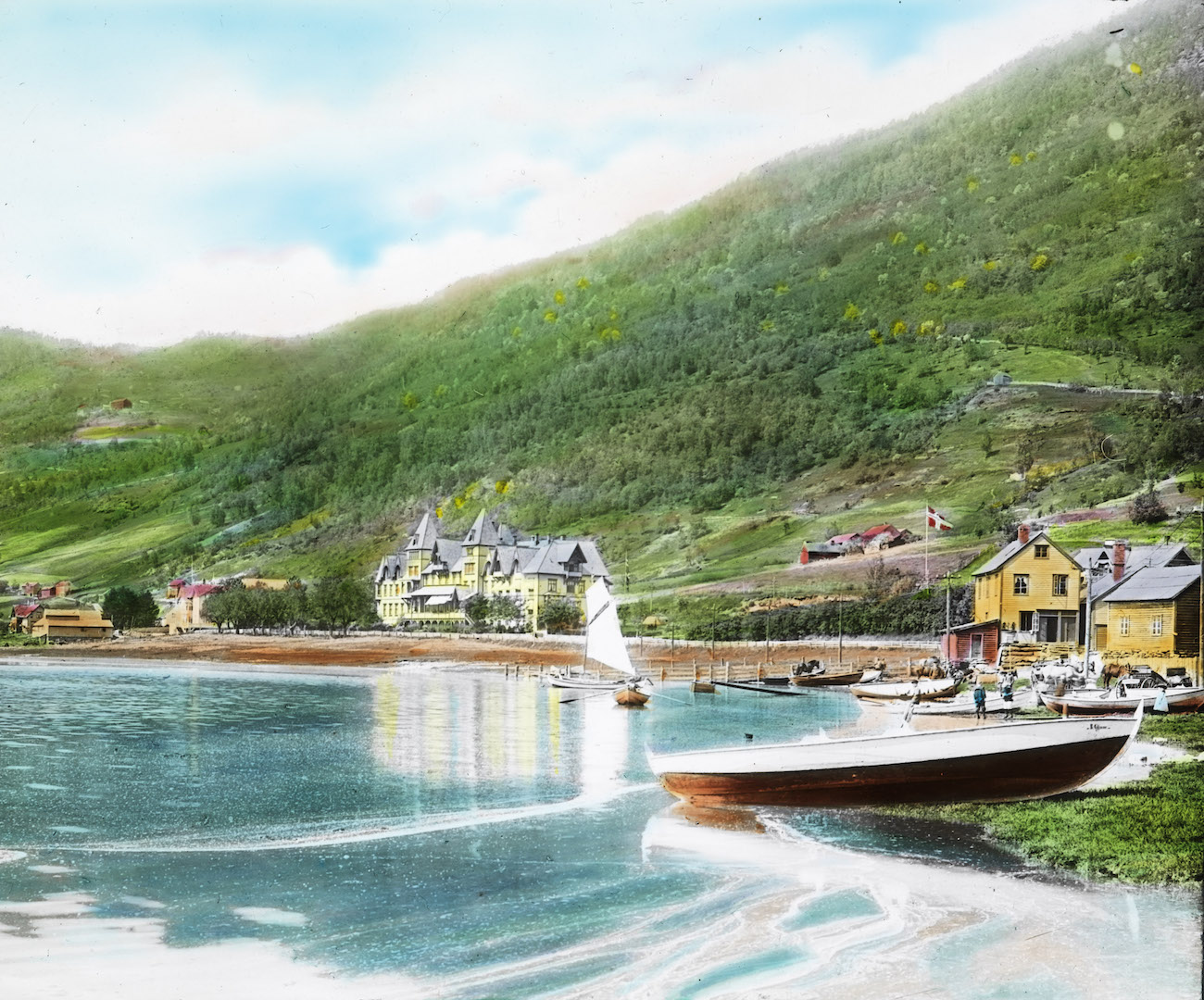
Voss. The building in the centre of the image is Fleischer’s Hotel. The hotel was built in 1889 in the then popular Swiss style. Fleischer’s Hotel was popular with well-to-do tourists around the turn of the 19th century.
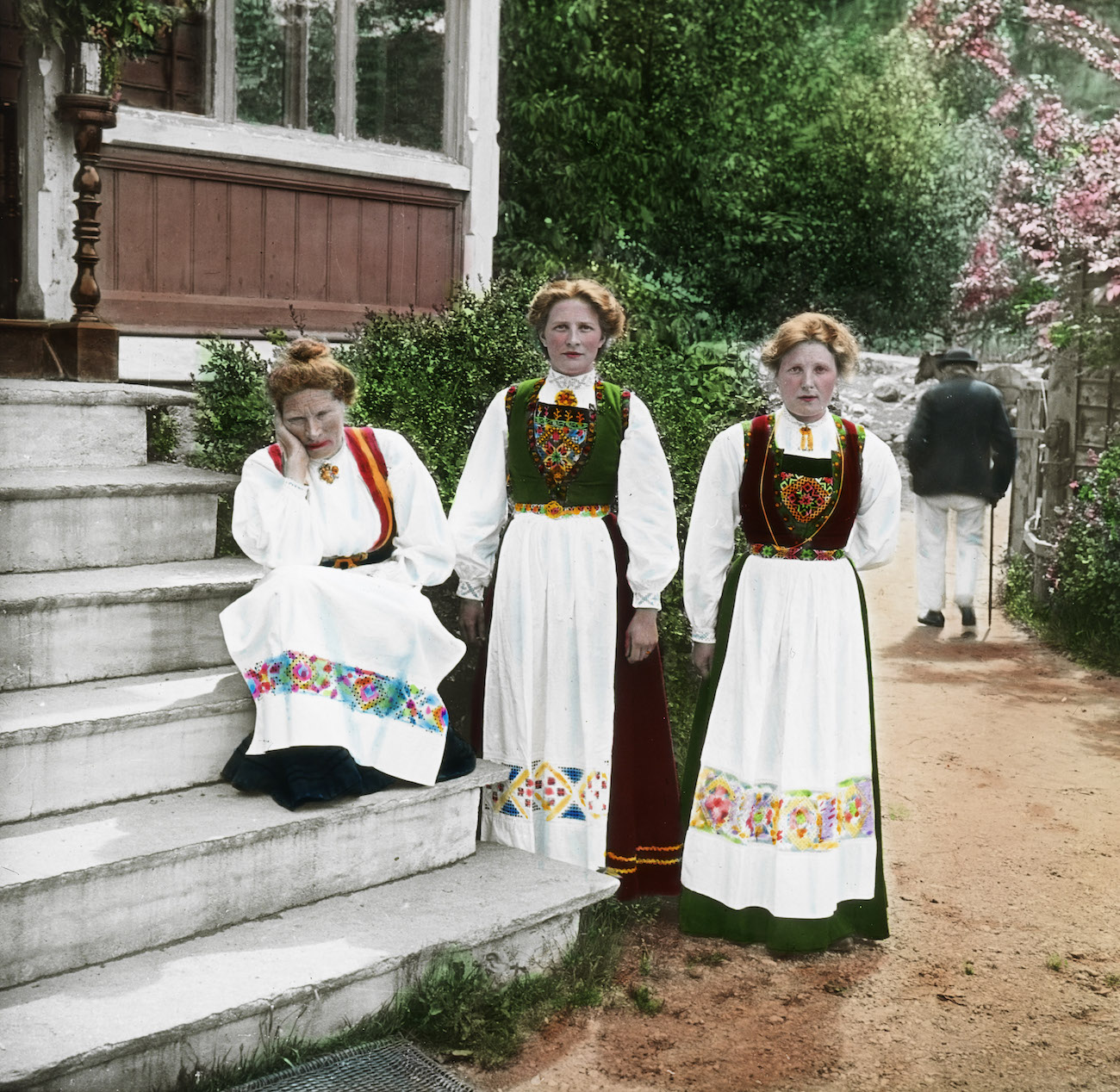
Three women in national costume, “bunad”, from the Hardanger region. They’re photographed outside Sundal Guesthouse in Mauranger.
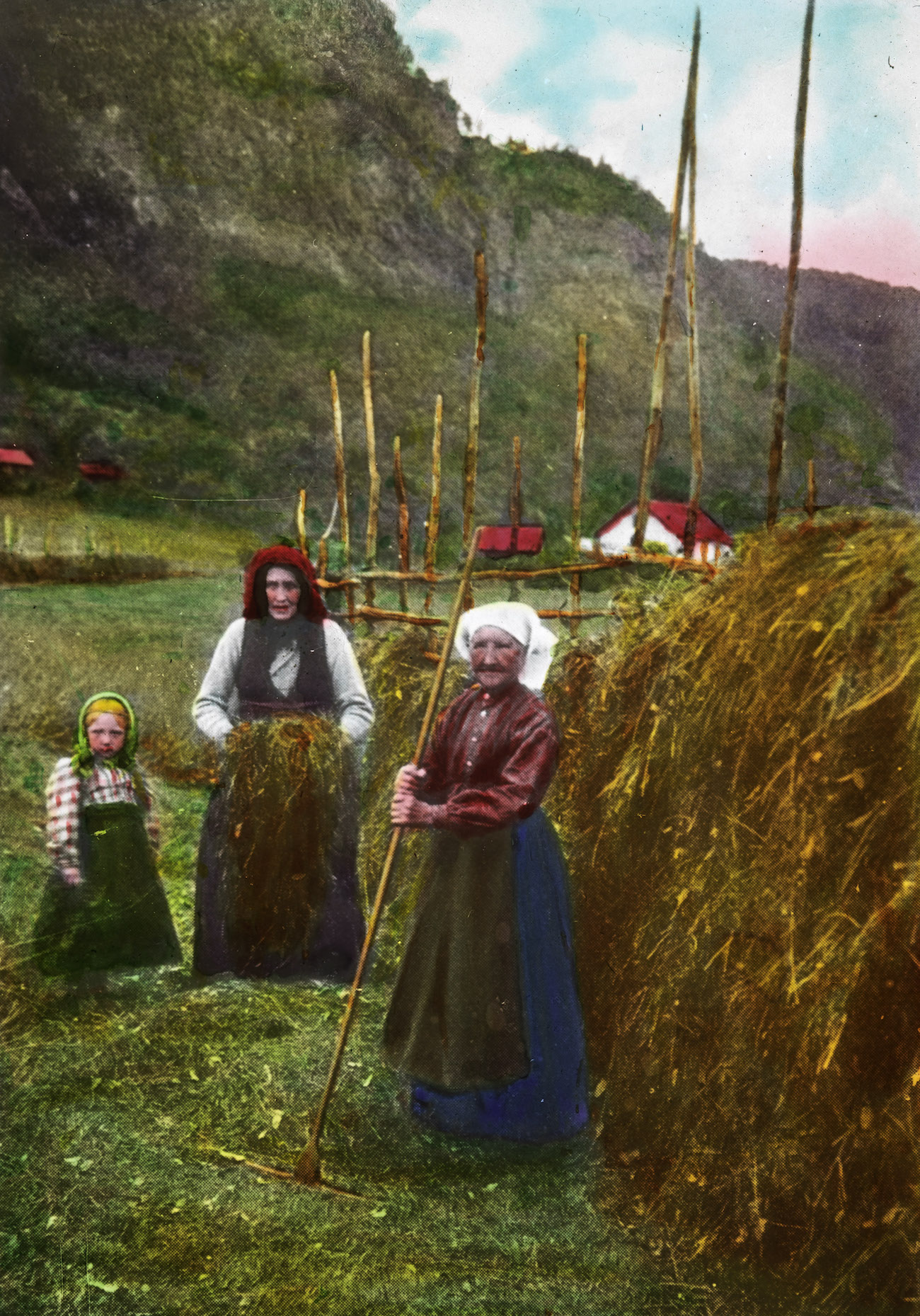
Two women and a young girl putting grass to dry on a “hesje”. The photo is probably from the Steinsdalen valley in Kvam, Hardanger. 1915
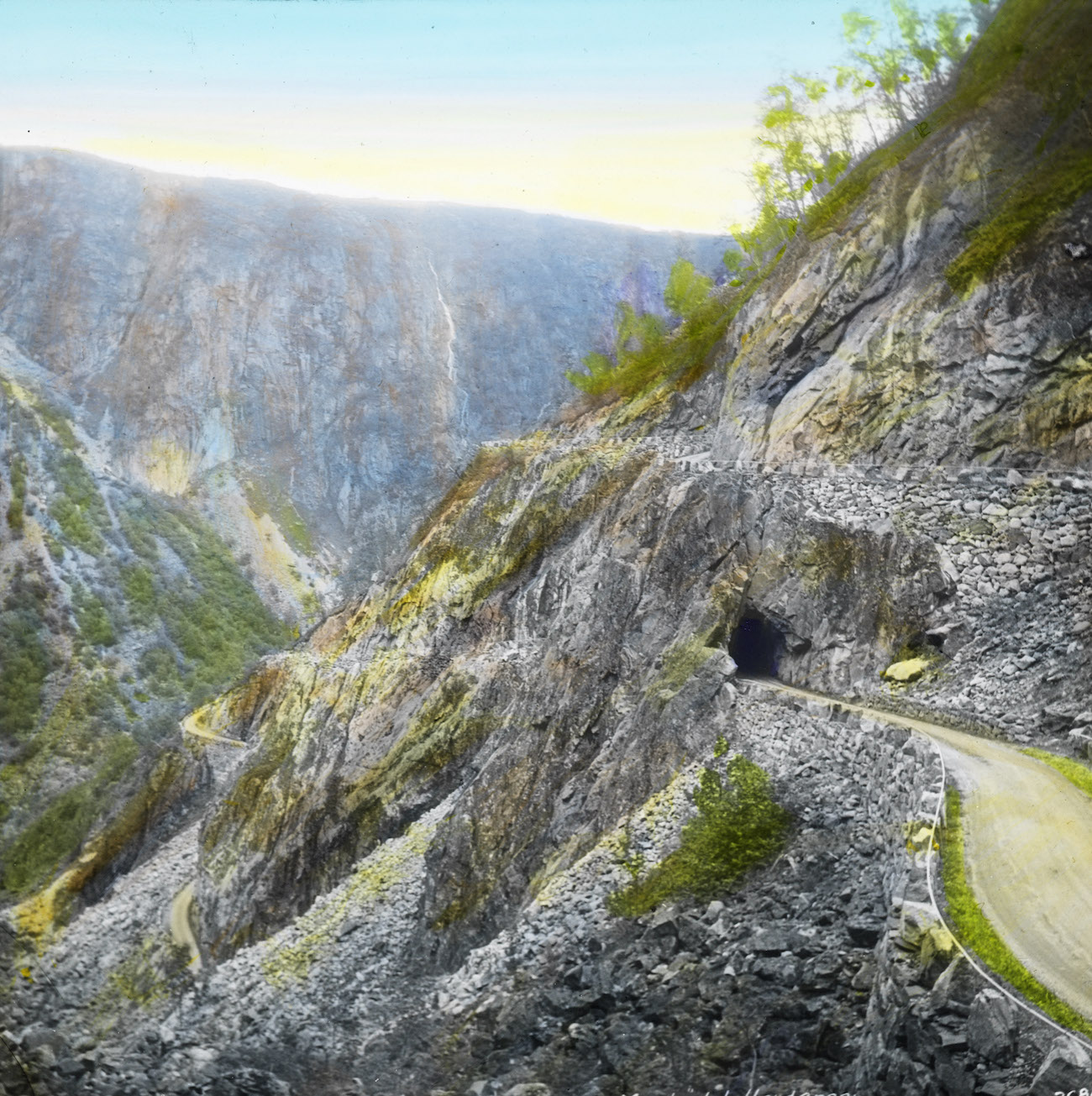
Måbødalen in Hardanger. The road in Måbødalen was under construction for a period of several years. The final stretch of road was finished in 1916.
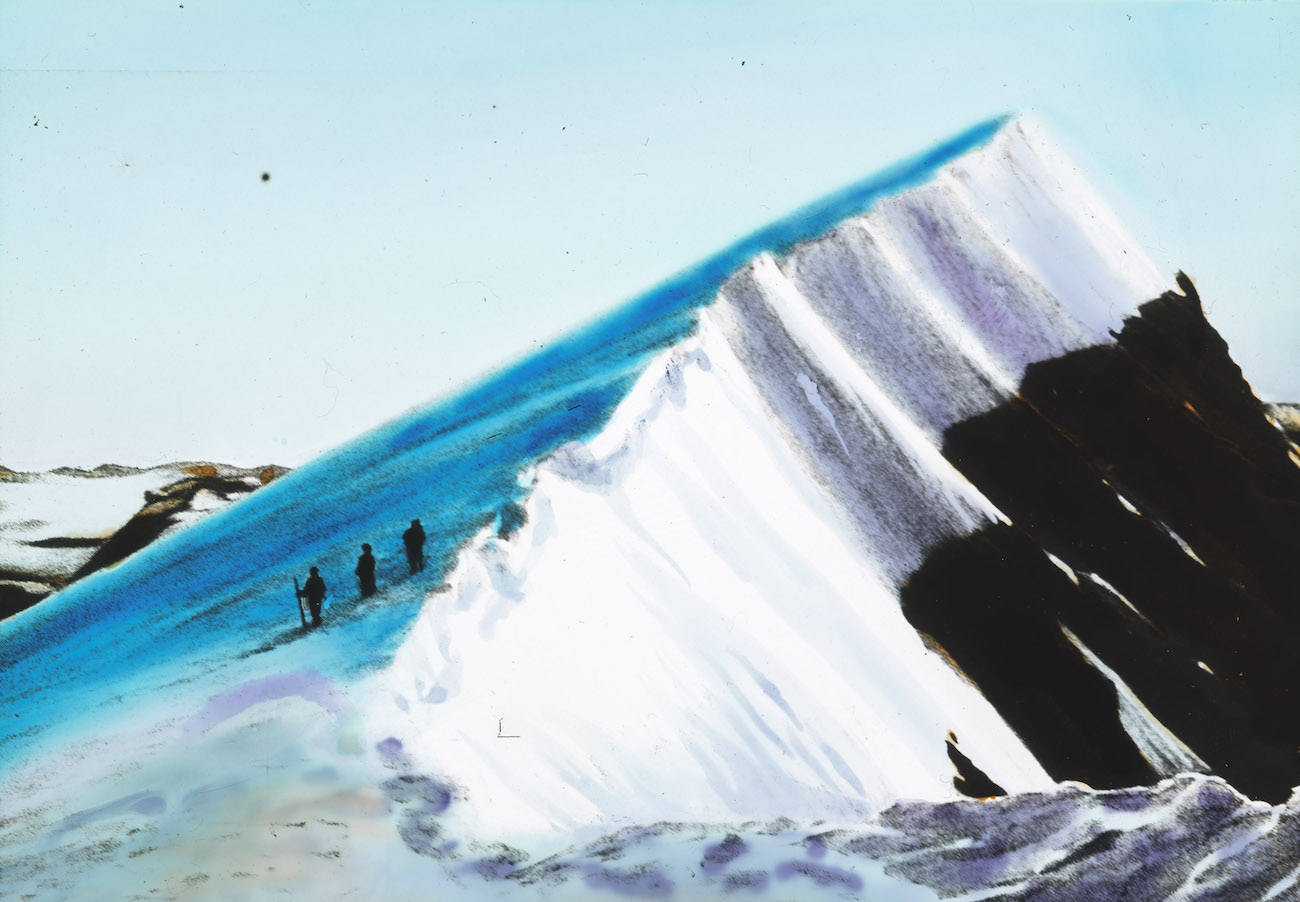
Glittertind – the second highest mountain in Norway. Not counting the icecap, Glittertind reaches 2454 m above sea level. Glittertind is located within the municipality of Lom, in the Jotunheimen mountain area.

Hotel Nordangsdal was located in Fivelstadhaugen by the road between Øye and Hellesylt. The hotel was built in 1885 and received a lot of tourists in the decades before the Second World War.
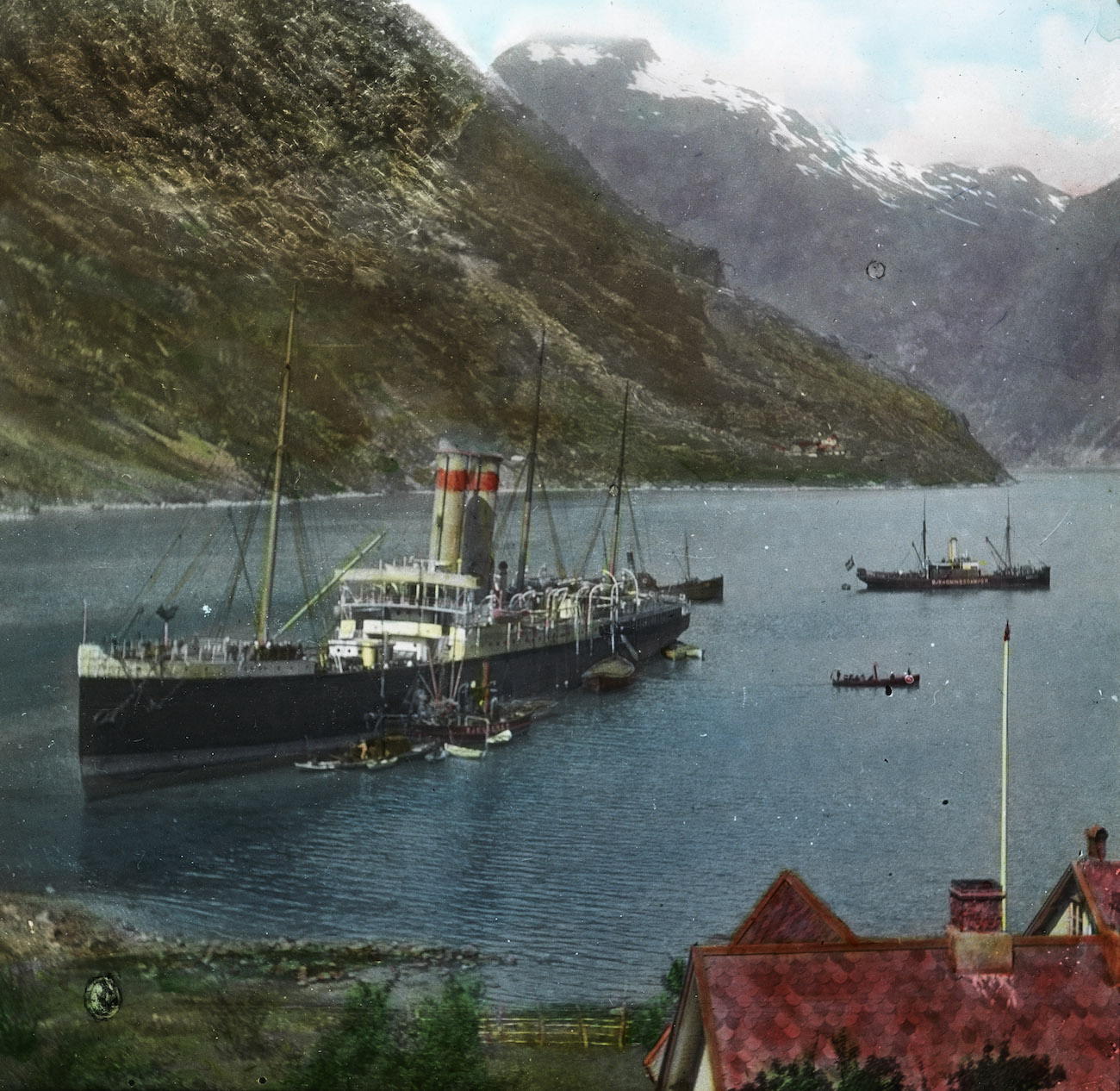
“The Viking” aground in the Geiranger fjord, 1910.
In 1910 “The Viking” ran aground on the sand bank by Hotel Merok in Geiranger. The steamer was about to make a stop in Geiranger when the accident happened: Instead of reversing the crew gave full speed ahead and ran aground. Several attempts were made to remove the ship from the sand bank, but it took several days to succeed. One anchor was lost. Today the anchor is displayed at this spot, still referred to as “the Viking sands”.
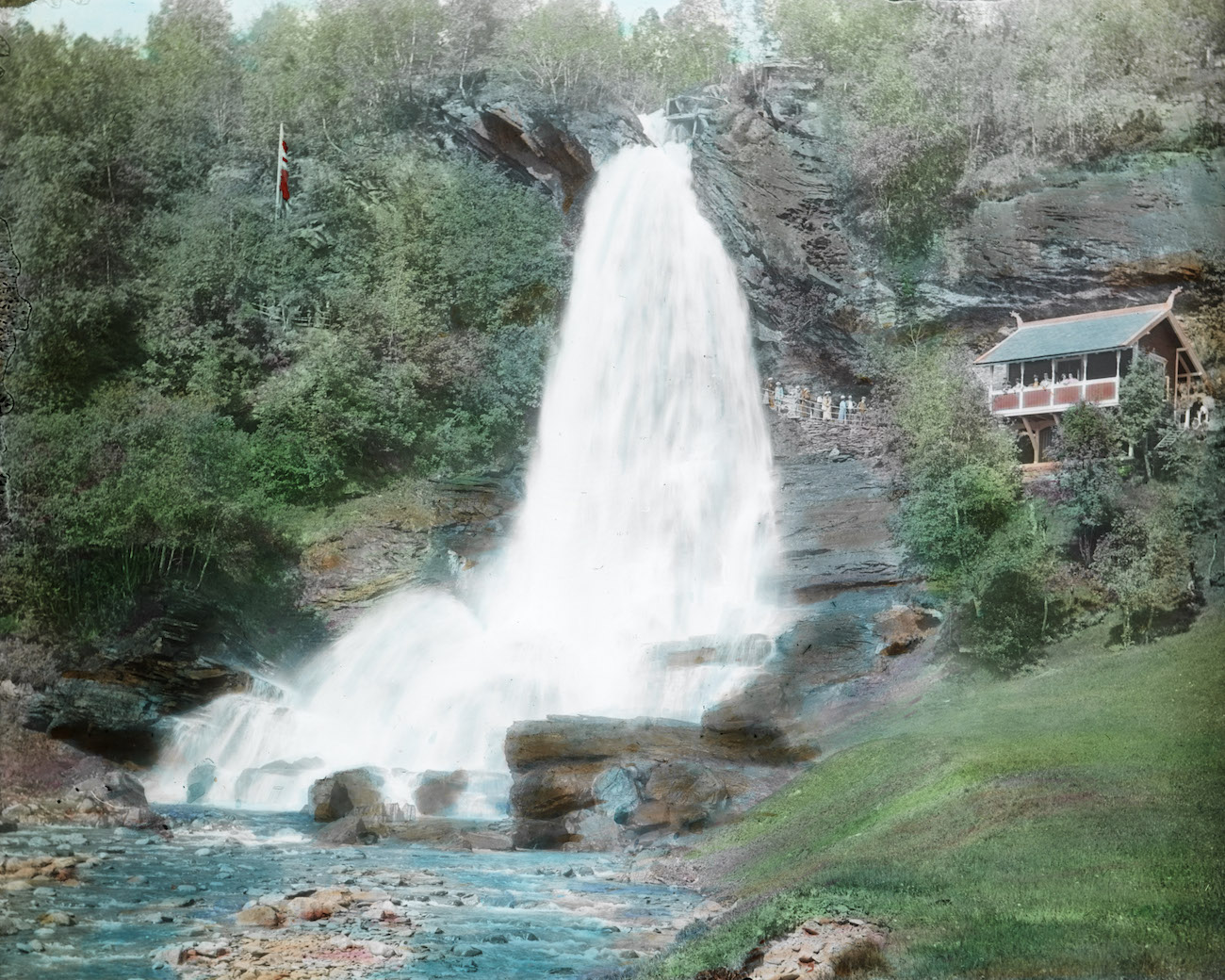
The Steinsdalsfossen waterfall near Norheimsund. Steinsdalsfossen is one of the most visited waterfalls in Norway. It is possible to walk dryshod on a path behind the falling water.
Via The County Archives of Sogn og Fjordane – fylkesarkiv.
Would you like to support Flashbak?
Please consider making a donation to our site. We don't want to rely on ads to bring you the best of visual culture. You can also support us by signing up to our Mailing List. And you can also follow us on Facebook, Instagram and Twitter. For great art and culture delivered to your door, visit our shop.

